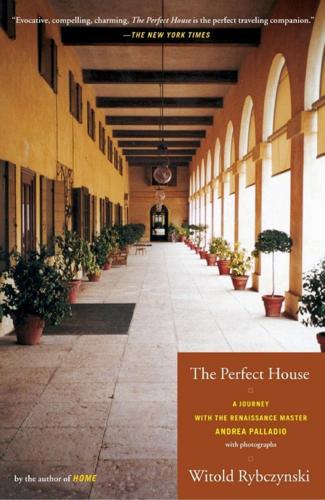
The Perfect House: A Journey With Renaissance Master Andrea Palladio
by
Witold Rybczynski
Published 2 Sep 2002
Ann Percy (University Park: Pennsylvania State University Press, 1968), 12–13, fn. 1. 8. Ibid., 21, fn. 11. 9. Martin Kubelik, “Palladio’s Villas in the Tradition of the Veneto Farm,” Assemblage, October 1986, 107. 10. Johann Wolfgang von Goethe, Italian Journey, trans. W. H. Auden and Elizabeth Mayer (San Francisco: North Point Press, 1982), 50. 11. Johann Wolfgang von Goethe, The Flight to Italy: Diary and Selected Letters, trans. T. J. Reed (Oxford: Oxford University Press, 1999), 46. 12. Vitruvius, The Ten Books on Architecture, trans. Morris Hicky Morgan (New York: Dover Publications, 1960), 73. 13.
…
SCRIBNER Cover design by John Fulbrook III Cover photograph by Witold Rybczynski Author photograph by Isak Tiner Visit us online at www.SimonandSchuster.com ALSO BY WITOLD RYBCZYNSKI Paper Heroes Taming the Tiger Home The Most Beautiful House in the World Waiting for the Weekend Looking Around A Place for Art City Life A Clearing in the Distance One Good Turn The Look of Architecture We hope you enjoyed reading this Scribner eBook. * * * Join our mailing list and get updates on new releases, deals, bonus content and other great books from Scribner and Simon & Schuster. CLICK HERE TO SIGN UP or visit us online to sign up at eBookNews.SimonandSchuster.com NOTES FOREWORD 1. Johann Wolfgang von Goethe, Italian Journey, trans. W. H. Auden and Elizabeth Mayer (San Francisco: North Point Press, 1982), 47. 2. Reprinted in Witold Rybczynski, Looking Around: A Journey Through Architecture (New York: Viking, 1992), 209–19. 3. James S. Ackerman, Palladio (New York: Penguin Books, 1966), 185. 4.
…
Ackerman, Distance Points: Essays in Theory and Renaissance Art and Architecture (Cambridge, Mass.: MIT Press, 1991), 381, fn. 25. 12. Palladio, Four Books, 17. 13. Giorgio Vasari, Lives of the Most Eminent Painters, Sculptors and Architects, trans. Gaston Du C. de Vere, vol. 3 (New York: Harry N. Abrams, 1979), 2015. 14. Palladio, Four Books, 203. 15. Johann Wolfgang von Goethe, Italian Journey, trans. W. H. Auden and Elizabeth Mayer (San Francisco: North Point Press, 1982), 47. 16. Lionello Puppi, Andrea Palladio, trans. Pearl Sanders (Boston: New York Graphic Society, 1975), 269. 17. Paolo Gualdo, “Life of Palladio” (1616), in Lewis, Drawings, 3. 18. Georgina Masson, “Palladian Villas as Rural Centres,” Architectural Review, July 1955, 20. 19.
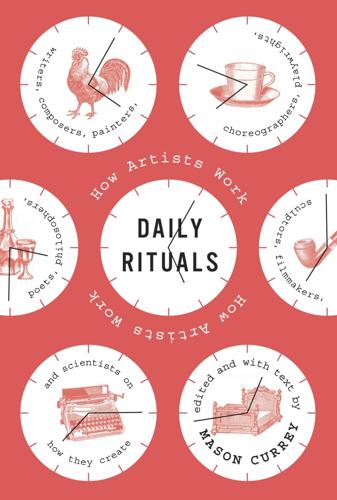
Daily Rituals: How Artists Work
by
Mason Currey
Published 22 Apr 2013
Mencken Philip Larkin Frank Lloyd Wright Louis I. Kahn George Gershwin Joseph Heller James Dickey Nikola Tesla Glenn Gould Louise Bourgeois Chester Himes Flannery O’Connor William Styron Philip Roth P. G. Wodehouse Edith Sitwell Thomas Hobbes John Milton René Descartes Johann Wolfgang von Goethe Friedrich Schiller Franz Schubert Franz Liszt George Sand Honoré de Balzac Victor Hugo Charles Dickens Charles Darwin Herman Melville Nathaniel Hawthorne Leo Tolstoy Pyotr Ilich Tchaikovsky Mark Twain Alexander Graham Bell Vincent van Gogh N. C. Wyeth Georgia O’Keeffe Sergey Rachmaninoff Vladimir Nabokov Balthus Le Corbusier Buckminster Fuller Paul Erdos Andy Warhol Edward Abbey V.
…
Arriving in Sweden, in time for one of the coldest winters in memory, Descartes was notified that his lessons to Queen Christina would take place in the mornings—beginning at 5:00 A.M. He had no choice but to obey. But the early hours and bitter cold were too much for him. After only a month on the new schedule, Descartes fell ill, apparently of pneumonia; ten days later he was dead. Johann Wolfgang von Goethe (1749–1832) As a young man Goethe could write all day long, but as he grew older he found that he could muster the necessary creative energy only in the mornings. “At one time in my life I could make myself write a printed sheet every day, and I found this quite easy,” he said in 1828.
…
Ann Arbor: University of Michigan Press, 1957); Helen Darbishire, ed., The Early Lives of Milton (1932; repr. New York: Barnes and Noble, 1965). 391. “would complain”: John Phillips, “The Life of Mr. John Milton,” in Darbishire, 33. 392. René Descartes: Jack Rochford Vrooman, René Descartes: A Biography (New York: G. P. Putnam’s Sons, 1970). 393. “Here I sleep”: Quoted ibid., 76. 394. Johann Wolfgang von Goethe: David Luke and Robert Pick, eds., Goethe: Conversations and Encounters (London: Oswald Wolff, 1966). 395. “At one time”: Quoted ibid., 177. 396. “My advice therefore”: Quoted ibid., 178. 397. Friedrich Schiller: Heinrich Doering, Friedrich von Schillers Leben, in Thomas Carlyle’s Life of Friedrich Schiller, facsimile ed.
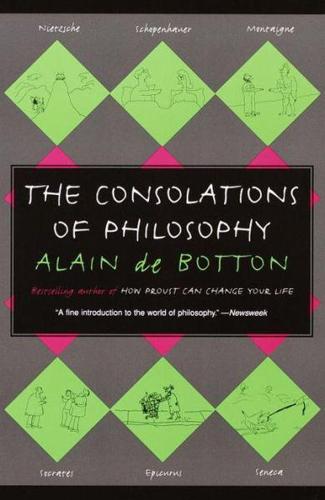
The Consolations of Philosophy
by
Alain de Botton
Published 1 Jan 2000
Schopenhauer quashes the plan, arguing that ‘life is so short, questionable and evanescent that it is not worth the trouble of major effort.’ Schopenhauer as a young man (Ill. 19.5) 1813 He visits his mother in Weimar. Johanna Schopenhauer has befriended the town’s most famous resident, Johann Wolfgang von Goethe, who visits her regularly (and likes talking with Sophie, Johanna’s housemaid, and Adele, Arthur’s younger sister). After an initial meeting, Schopenhauer describes Goethe as ‘serene, sociable, obliging, friendly: praised be his name for ever and ever!’ Goethe reports, ‘Young Schopenhauer appeared to me to be a strange and interesting young man.’
…
We may be obliged to continue burrowing underground, but through creative works, we can at least acquire moments of insight into our woes, which spare us feelings of alarm and isolation (even persecution) at being afflicted by them. In their different ways, art and philosophy help us, in Schopenhauer’s words, to turn pain into knowledge. The philosopher admired his mother’s friend Johann Wolfgang von Goethe because he had turned so many of the pains of love into knowledge, most famously in the novel he had published at the age of twenty-five, and which had made his name throughout Europe. The Sorrows of Young Werther described the unrequited love felt by a particular young man for a particular young woman (the charming Lotte, who shared Werther’s taste for The Vicar of Wakefield and wore white dresses with pink ribbons at the sleeves), but it simultaneously described the love affairs of thousands of its readers (Napoleon was said to have read the novel nine times).
…
A better indication of their identity came in a passing remark in a letter to his mother and sister: Really, there is nobody living about whom I care much. The people I like have been dead for a long, long time – for example, the Abbé Galiani, or Henri Beyle, or Montaigne. He could have added another hero, Johann Wolfgang von Goethe. These four men were perhaps the richest clues for what Nietzsche came in his maturity to understand by a fulfilled life. They had much in common. They were curious, artistically gifted, and sexually vigorous. Despite their dark sides, they laughed, and many of them danced, too; they were drawn to ‘gentle sunlight, bright and buoyant air, southerly vegetation, the breath of the sea [and] fleeting meals of flesh, fruit and eggs’.
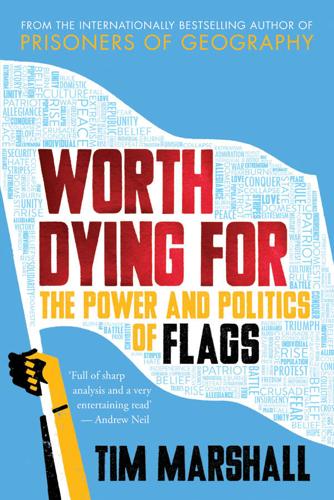
Worth Dying For: The Power and Politics of Flags
by
Tim Marshall
Published 21 Sep 2016
These heraldic bearings came to be linked with rank and lineage, particularly for royal dynasties, and this is one of the reasons why European flags evolved from being associated with battlefield standards and maritime signals to becoming symbols of the nation state. Every nation is now represented by a flag, testament to Europe’s influence on the modern world as its empires expanded and ideas spread around the globe. As Johann Wolfgang von Goethe told the designer of the Venezuelan flag, Francisco de Miranda: ‘A country starts out from a name and a flag, and it then becomes them, just as a man fulfils his destiny.’ What does it mean to try to encapsulate a nation in a flag? It means trying to unite a population behind a homogeneous set of ideals, aims, history and beliefs – an almost impossible task.
…
It had been designed as early as 1806 by one of Bolívar’s fellow revolutionaries, Francisco de Miranda, who credited two things for his inspiration. He remembered a fresco he had seen in Italy in which Christopher Columbus was unfurling a yellow, blue and red flag as he came ashore at Venezuela; he also recalled a conversation he had had with the great German writer Johann Wolfgang von Goethe several decades earlier. De Miranda claimed that Goethe, upon hearing of his adventures in the Americas, had told him: ‘Your destiny is to create in your land a place where primary colours are not distorted.’ Goethe had thought long and hard about colour and de Miranda says he proved to him ‘[why] yellow is the most warm, noble and closest to light, why blue is that mix of excitement and serenity, a distance that evokes shadows; and why red is the exaltation of yellow and blue, the synthesis, the vanishing of light into shadow’.
…
page_id=115 Carrasco, David and Sessions, Scott, Daily Life of the Aztecs: People of the Sun and Earth (Westport, CT: Greenwood Publishing Group, 1998) von Goethe, Johann Wolfgang, Goethe’s Theory of Colours: Translated From The German, With Notes (Cambridge: Cambridge University Press, 2014) Jensen, Anthony K., ‘Johann Wolfgang von Goethe (1749–1832)’, Internet Encyclopedia of Philosophy, http://www.iep.utm.edu/goethe/ ‘Latin America Has Achieved Progress in Health, Education and Political Participation of Indigenous Peoples in the Last Decade’, Economic Commission for Latin America and the Caribbean, Press Release, 22 October 2014 http://www.cepal.org/en/pressreleases/latin-america-has-achieved-progress-health-education-and-political-participation Macaulay, Neill, Dom Pedro: The Struggle for Liberty in Brazil and Portugal, 1798–1834 (Durham, NC: Duke University Press, 1986) ‘Panama Canal Riots – 9–12 January 1964’, GlobalSecurity.org http://www.globalsecurity.org/military/ops/panama-riots.htm The Good, the Bad and the Ugly Ship’s Log, British Navy Ship HMS Poole, July 1700.
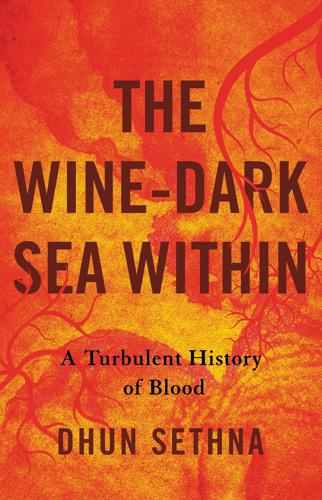
The Wine-Dark Sea Within: A Turbulent History of Blood
by
Dhun Sethna
Published 6 Jun 2022
For the first time, fissures in the Galenic system were exposed, setting a preparation and precedent for Harvey’s overturning of the whole of Galen’s edifice a century later. Further, as in the case with Leonardo, the true knowledge at that time of any part or organ was based on its structure, on the accurate understanding of its anatomy, and in this, Vesalius revolutionized its study. AIR AND BLOOD Blood is a juice of a very special kind. —Johann Wolfgang von Goethe fifteen Hunted Heretic Science like life feeds on its own decay. New facts burn old rules; then newly developed concepts bind old and new together into a reconciling law. —Henry James When Vesalius was studying at Paris University (now known as the Sorbonne), it is doubtful whether he knew much about a colleague who called himself Villeneuve.
…
A WORLD ON FIRE Science commits suicide when it adopts a creed. —Thomas Henry Huxley twenty-four Pride and Prejudice It is much easier to recognize error than to find Truth: the former lies on the surface, this is quite manageable. The latter resides in the depth, and this quest is not everyone’s business. —Johann Wolfgang von Goethe Science has a way of creating myths to explain existence and to address change. Galen had imagined septal perforations and an ebb and flow of blood a thousand years earlier and the world had marveled. It mattered little that what had been offered were false marvels. New ideas do not battle so much with ignorance as with presumed knowledge.
…
Physiology was at the intersection of what could be regarded as a horizontal–vertical crossroads: the point at which the motion of the heart as the result of fermentation was poised against the ideal of a powerful and all-important muscular organ. twenty-six Bad Blood Do not complain of the mean and petty, for regardless of what you have been told, the mean and petty are everywhere in control. —Johann Wolfgang von Goethe At a disputation held at the Sorbonne in December 1642, it was concluded that blood did indeed move in a circle. Three years later, the question was raised whether Galen’s account of blood flow should be formally revised. The president at that event was Jean Riolan fils, son of Jean Riolan of Amiens who, for a period, had been dean of the Faculty of Medicine.

Taming the To-Do List: How to Choose Your Best Work Every Day
by
Glynnis Whitwer
Published 10 Aug 2015
The dreams of my heart speak in a whisper, not a roar. Especially when I press them down over and over. With my children, one quiet priority is time without an agenda, so our conversation can naturally flow. These priorities don’t shout at me; they just patiently wait for my attention. German poet Johann Wolfgang von Goethe said, “Things that matter most must never be at the mercy of things that matter least.”[4] If you find yourself in a place of not knowing what is important, consider asking God. The Bible tells us God freely gives us wisdom, and that’s what we need most. In James 1:5–8, we find instructions on how to ask God for wisdom.
…
Tim Kreider, “The ‘Busy’ Trap,” New York Times, June 30, 2012, http://opinionator.blogs.nytimes.com/2012/06/30/the-busy-trap/?_r=0. [2]. Carol Brazo, No Ordinary Home: The Uncommon Art of Christ-centered Homemaking (Sisters, OR: Multnomah, 1995), 24. [3]. “John D. Rockefeller,” New World Encyclopedia, accessed March 23, 2015, http://www.newworldencyclopedia.org/entry/John_D._Rockefeller. [4]. “Johann Wolfgang von Goethe Quotes,” Goodreads.com, accessed March 23, 2015, http://www.goodreads.com/quotes/2326-things-which-matter-most-must-never-be-at-the-mercy. Chapter 8 Thinking with Focus and Clarity [1]. “Starving for Sleep: America’s Hunger Games,” The Better Sleep Council, February 2014, http://bettersleep.org/better-sleep/the-science-of-sleep/sleep-statistics-research/starving-for-sleep-americas-hunger-games/

Germany
by
Andrea Schulte-Peevers
Published 17 Oct 2010
* * * In the 17th century, Christoph Martin Wieland (1733–1813) penned his Geschichte des Agathon (Agathon; 1766–67), a landmark in German literature because it was the first Bildungsroman (a novel showing the development of the hero); Wieland was also the first to translate Shakespeare into German. Shortly after Wieland was summoned to Weimar in 1772, Johann Wolfgang von Goethe (1749–1832) rose to become Germany’s most powerful literary figure, later joining forces with Friedrich Schiller (1759–1805) in a celebrated period known as Weimarer Klassik (Weimar classicism; Click here). * * * Read Simplicissimus (Adventures of a Simpleton) by Hans Jacob Christoffel von Grimmelshausen as an appetiser to the early German novel
…
The average theatre in the network of city, regional and national spaces will put on about 20 or more plays each year. Masters of the Enlightenment who frequently get a showing include Saxony’s Gotthold Ephraim Lessing (1729–81); Württemberg-born Friedrich Schiller, who features especially strongly in Weimar’s theatre landscape today; and, of course, Johann Wolfgang von Goethe, who tinkered with his two-part Faust for 60 years of his life and created one of Germany’s most powerful and enduring dramas about the human condition. Woyzeck by Georg Büchner (1813–37) is another popular piece and, having anticipated Theatre of the Absurd, lends itself to innovative staging.
…
Once you’ve done cultural and historical Thuringia, however, it’s time to shake off all those civilising influences and explore the rich natural offerings of the Thuringian Forest. Its sleepy villages are the portals through which hikers, cyclists and anyone in need of stress relief can indulge their love for the outdoors. You can walk in the footsteps of Johann Wolfgang von Goethe, feeling embraced by thick forest and liberated by vistas that send the spirit soaring. Although its roads and trails are well trodden and its cities were long ago etched onto the world cultural map, Thuringia brings many unexpected rewards for visitors who put aside frantic activity and immerse themselves in the gentle momentum of slow travel
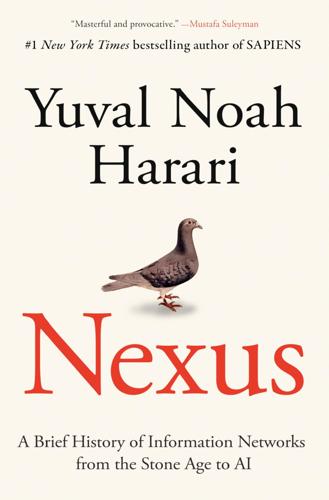
Nexus: A Brief History of Information Networks From the Stone Age to AI
by
Yuval Noah Harari
Published 9 Sep 2024
Consider, for example, the dramatic reduction in child mortality. Johann Wolfgang von Goethe was the eldest of seven siblings, but only he and his sister Cornelia got to celebrate their seventh birthday. Disease carried off their brother Hermann Jacob at age six, their sister Catharina Elisabeth at age four, their sister Johanna Maria at age two, their brother Georg Adolf at age eight months, and a fifth, unnamed brother was stillborn. Cornelia then died from disease aged twenty-six, leaving Johann Wolfgang as the sole survivor from their family.7 Johann Wolfgang von Goethe went on to have five children of his own, of whom all but the eldest son—August—died within two weeks of their birth.
…
Zeus intervenes and strikes Phaethon with a thunderbolt. The conceited human drops from the sky like a falling star, himself on fire. The gods reassert control of the sky and save the world. Two thousand years later, when the Industrial Revolution was making its first steps and machines began replacing humans in numerous tasks, Johann Wolfgang von Goethe published a similar cautionary tale titled “The Sorcerer’s Apprentice.” Goethe’s poem (later popularized as a Walt Disney animation starring Mickey Mouse) tells how an old sorcerer leaves a young apprentice in charge of his workshop and gives him some chores to tend to while he is gone, like fetching water from the river.
…
Quoted in Christian Fuchs, “An Alternative View of Privacy on Facebook,” Information 2, no. 1 (2011): 140–65. 6. Ray Kurzweil, The Singularity Is Nearer: When We Merge with AI (London: The Bodley Head, 2024), 121–23. 7. Sigrid Damm, Cornelia Goethe (Berlin: Insel, 1988), 17–18; Dagmar von Gersdorff, Goethes Mutter (Stuttgart: Hermann Bohlaus Nachfolger Weimar, 2004); Johann Wolfgang von Goethe, Goethes Leben von Tag zu Tag: Eine dokumentarische Chronik (Dusseldorf: Artemis, 1982), 1:1749–75. 8. Stephan Oswald, Im Schatten des Vaters. August von Goethe (Munich: C. H. Beck, 2023); Rainer Holm-Hadulla, Goethe’s Path to Creativity: A Psycho-biography of the Eminent Politician, Scientist, and Poet (New York: Routledge, 2018); Lisbet Koerner, “Goethe’s Botany: Lessons of a Feminine Science,” History of Science Society 84, no. 3 (1993): 470–95; Alvin Zipursky, Vinod K.
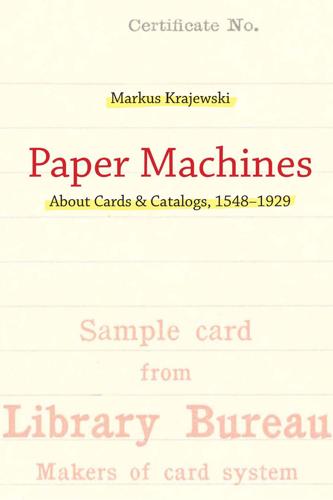
Paper Machines: About Cards & Catalogs, 1548-1929
by
Markus Krajewski
and
Peter Krapp
Published 18 Aug 2011
Über formal unentscheidbare Sätze der “Principia Mathematica” und verwandter Systeme I. Monatshefte für Mathematik und Physik 38:173– 198. Goethe, Johann Wolfgang von. 1801/1994. Tag- und Jahreshefte. In Autobiographische Schriften II. Vol. 10 of Johann Wolfgang von Goethe: Werke: Hamburger Ausgabe, 10, 429–528. Revised edition. Munich: C. H. Beck. Goethe, Johann Wolfgang von. 1831/1996. Faust: Der Tragödie Zweiter Teil. In fünf Akten. Vol. 3 of Johann Wolfgang von Goethe: Werke: Hamburger Ausgabe, 16, 46–364. Revised edition. Munich: C. H. Beck. Gosch, Josias Ludwig. 1789. Fragmente über den Ideenumlauf. Copenhagen: Proft. Graesel, Arnim. 1902. Handbuch der Bibliothekslehre: Zweite, voellig umgearbeitete Auflage der “Grundzüge der Bibliothekslehre, Neubearbeitung von Dr.
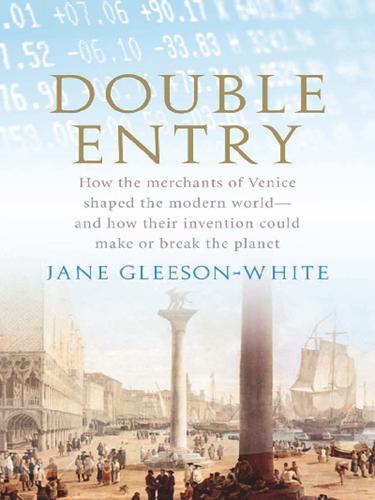
Double Entry: How the Merchants of Venice Shaped the Modern World - and How Their Invention Could Make or Break the Planet
by
Jane Gleeson-White
Published 14 May 2011
Allen & Unwin Sydney, Melbourne, Auckland, London 83 Alexander Street Crows Nest NSW 2065 Australia Phone: (61 2) 8425 0100 Fax: (61 2) 9906 2218 Email: info@allenandunwin.com Web: www.allenandunwin.com Cataloguing-in-Publication details are available from the National Library of Australia www.trove.nla.gov.au ISBN 978 1 74175 755 2 Index by Jo Rudd Text design by Peter Long Set in 11.5/16 pt Minion by Post Pre-press Group, Australia eBook production by Midland Typesetters, Australia Also by Jane Gleeson-White Classics Australian Classics For my father Michael Gleeson-White, who told me tales of art and finance And for Michael Hill, always What advantages does the merchant derive from Book-keeping by double-entry? It is amongst the finest inventions of the human mind. Johann Wolfgang von Goethe, 1795 More than four hundred years ago, in the very first book published on the subject, bookkeeping was outlined in a form which still prevails around the entire world. A.C. Littleton, 1933 Historians often forget. Even the most mundane professions have their history, and those mundane professions increasingly run the capitalist world.
…
p. 128 ‘very impartially . . .’ Daniel Defoe, Robinson Crusoe, Penguin, Ringwood, 1985, p. 83. p. 128 ‘tho’ the exactest book-keeping . . .’ Daniel Defoe, The Complete English Tradesman, 1725–27, www.online-literature.com/defoe/english-tradesman/20. p. 129 ‘At that time, you had no . . .’ Johann Wolfgang von Goethe, Wilhelm Meister’s Apprenticeship, Bell & Daldy, London, 1867, p. 27. Chapter 6 p. 134 The passions it inspired . . . Yamey, Essays on the History of Accounting, op. cit., p. 137. p. 134 ‘For every debit there must . . .’ Brown, op. cit., p. 160. p. 135 ‘the false prophet had . . .’
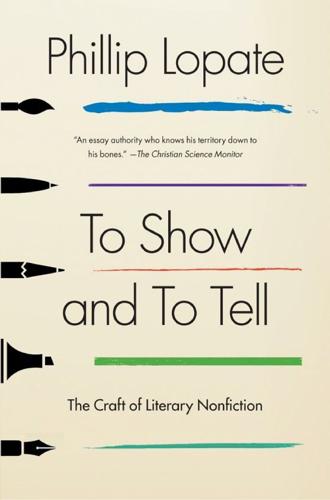
To Show and to Tell: The Craft of Literary Nonfiction
by
Phillip Lopate
Published 12 Feb 2013
Some Classic Autobiographies and Memoirs (Pre–Twentieth Century) Saint Augustine: Confessions Benvenuto Cellini: Autobiography Jacques Casanova: Memoirs Duc de Saint-Simon: Memoirs Margaret Cavendish, Duchess of Newcastle: Memoirs, Life of the Duke Jean-Jacques Rousseau: Confessions Benjamin Franklin: Autobiography Johann Wolfgang von Goethe: Autobiography (“Poetry and Truth”) François-René Chateaubriand: Mémoires d’outre tombe Stendhal: Memoirs of an Egotist and The Life of Henri Brulard John Stuart Mill: Autobiography Frederick Douglass: Autobiography Henry David Thoreau: Walden Harriet Jacobs: Incidents in the Life of a Slave-Girl Thomas De Quincey: Confessions of an English Opium-Eater John Ruskin: Praeterita Alexander Herzen: My Past and Thoughts Edmund Gosse: Father and Son Daniel Paul Schreber: Memoirs of My Nervous Illness Ulysses S.
…
Cioran: The Temptation to Exist Gaston Bachelard: The Poetics of Space, The Poetics of Reverie Theodor Adorno: Minima Moralia Diaries and Notebooks Sei Shonagon: The Pillow Book Kenko: Essays in Idleness Samuel Pepys: The Diary of Samuel Pepys James Boswell: Journals Ralph Waldo Emerson: The Notebooks Edmond and Jules de Goncourt: Journals George Templeton Strong: The Diaries Franz Kafka: Diaries Anne Frank: The Diary of Anne Frank Victor Klemperer: I Shall Bear Witness Cesare Pavese: The Burning Brand Witold Gombrowicz: Diary, vols. 1–3 André Gide: Journals Letters Mme. de Sévigné: Letters to Her Daughter Alexander Pushkin: Collected Letters Lord Byron: Byron’s Letters and Journals John Keats: Selected Letters Gustave Flaubert: Selected Letters Vincent van Gogh: Dear Theo Franz Kafka: Letters to Milena Aphorisms, Thought Catch-Alls, and Similar Curiosities La Rochefoucauld: Maxims La Bruyère: Characters Robert Burton: The Anatomy of Melancholy Thomas Browne: The Urn Burial, Religio Medici Giacomo Leopardi: Pensieri Cyril Connolly (Palinaurus): The Unquiet Grave Yang Ye (editor): Vignettes from the Late Ming History Thucydides: The Peloponnesian War Herodotus: The Histories Edward Gibbon: The Decline and Fall of the Roman Empire Thomas Carlyle: The French Revolution Jules Michelet: Histories of France Washington Irving: A History of New York Jacob Burckhardt: The Civilization of the Renaissance in Italy Henry Adams: History of the United States under Jefferson and Madison Francis Parkman: France and England in North America, The Oregon Trail Richard Hofstadter: The Age of Reform, Anti-Intellectualism in American Life Ferdinand Braudel: The Mediterranean Biographies Plutarch: Lives of the Greeks and Romans Giorgio Vasari: Lives of the Artists John Aubrey: Brief Lives Samuel Johnson: Lives of the English Poets James Boswell: Life of Samuel Johnson Elizabeth Gaskell: The Life of Charlotte Brontë Charles Sainte-Beuve: Portraits J. Anthony Froude: Thomas Carlyle Lytton Strachey: Eminent Victorians Gertrude Stein: The Autobiography of Alice B. Toklas Geoffrey Scott: Portrait of Zélide Travel and Place Basho: Back Roads to Far Towns Johann Wolfgang von Goethe: Italian Journey Frances Trollope: Domestic Manners of the Americans Astolfe de Custine: Letters from Russia Charles M. Doughty: Travels in Arabia Deserta Robert Louis Stevenson: Travels with a Donkey Mark Twain: Life on the Mississippi Richard F. Burton: First Footsteps in East Africa, Wanderings in West Africa Henry James: Collected Travel Writings Robert Byron: The Road to Oxiana Djuna Barnes: New York Osip Mandelstam: Journey to Armenia Theodore Dreiser: The Color of a Great City Paul Morand: New York Joseph Roth: What I Saw, Report from a Parisian Paradise Louis Aragon: Paris Peasant D.
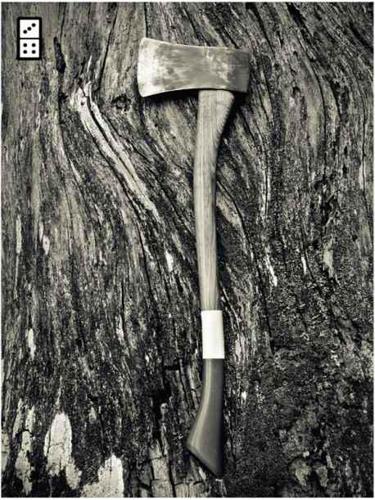
Self-Reliance and Other Essays
by
Ralph Waldo Emerson
Published 12 Oct 1993
A whole stream of events issues from the decision, raising in one’s favor all manner of unforeseen incidents, meetings and material assistance which no man could have dreamed would have come his way. Whatever you can do or dream you can, begin it. Boldness has genius, power and magic in it. Begin it now. Johann Wolfgang Von Goethe ● ● ● Man is timid and apologetic; he is no longer upright; he dares not say ‘I think,’ ‘I am,’ but quotes some saint or sage. He is ashamed before the blade of grass or the blowing rose. These roses under my window make no reference to former roses or to better ones; they are for what they are; they exist with God today.
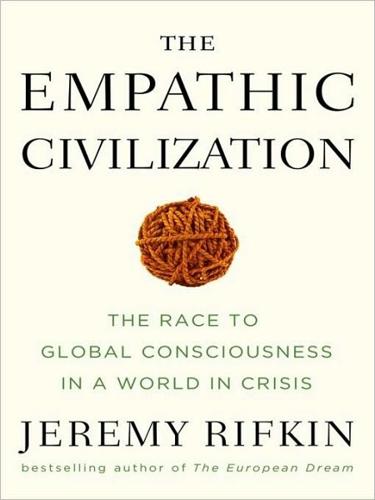
The Empathic Civilization: The Race to Global Consciousness in a World in Crisis
by
Jeremy Rifkin
Published 31 Dec 2009
Fortunately, we have a record that chronicles both the development of empathic expression and the evolution of human consciousness. The evidence is embedded deep in the conversations that make up the stories we’ve told about ourselves across history. It’s in the narratives we’ve left behind. FIRST THERE WAS THE WORD The great German philosopher and scientist Johann Wolfgang von Goethe, who dedicated a lifetime to unlocking the mysteries of light and color, tells a story about what is the most important single thing in life. The golden king asks the snake, “What is more glorious than gold?” “Light,” answers the snake. The king responds by asking, “What is more refreshing than light?”
…
In the mid-eighteenth century, however, the autobiographical genre exploded. In his book The Value of the Individual: Self and Circumstance in Autobiography, historian and Columbia University professor Karl J. Weintraub shows in the autobiographies of Giambattista Vico, Edward Gibbon, Jean-Jacques Rousseau, and Johann Wolfgang von Goethe the line of progression in self-awareness and empathic expression that characterized the period leading up to the American and French revolutions and the opening of the modern age at the beginning of the nineteenth century. The Italian scholar Giambattista Vico, in his autobiography, which was published in 1728, shared with his readers his belief that human nature is not preordained by God or determined by fate but, rather, an ever-evolving process in which human beings create their own realities and pass the lessons learned on to the next generation, who build upon it to fashion their own lives and stories.
…
At such times he felt himself to be whole, to be a harmonious part of a larger whole. At such moments he needed nothing, not even words. . . . A simple exclamation “Oh! Oh Nature! Oh Mother!” was the fully adequate expression of his overflowing heart.91 Fittingly, the great German philosopher and scientist Johann Wolfgang von Goethe’s autobiography From My Life: Poetry and Truth, released in 1808 and continually updated until 1831, stands alone at the beginning of modernity as the best attempt to reconcile the mechanistic cosmology and rationalism of the Enlightenment extolled by Descartes and Newton in the seventeenth century and the early Romantic reaction of Rousseau and his ilk in the eighteenth century.
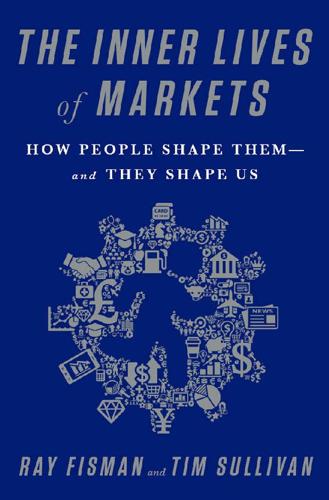
The Inner Lives of Markets: How People Shape Them—And They Shape Us
by
Tim Sullivan
Published 6 Jun 2016
Besides, it was concerns about overpayment that led to the crisis in the posting system in the first place: if the auction system breaks down completely, it isn’t good for anyone.7 Johann Wolfgang von Goethe, Amateur Auction Theorist It turned out that stamp collectors weren’t even the first to beat economists to the Vickrey auction. They were already anticipated, at least in spirit, by the German writer Johann Wolfgang von Goethe forty years before the Penny Black appeared. Like many a temperamental and idealistic artist, Goethe had an uneasy relationship with money. He was on the one hand disdainful of the profit motive (he once wrote to a publisher, “I look odd to myself when I pronounce the word Profit”), while at the same time anxious that his worth be recognized.
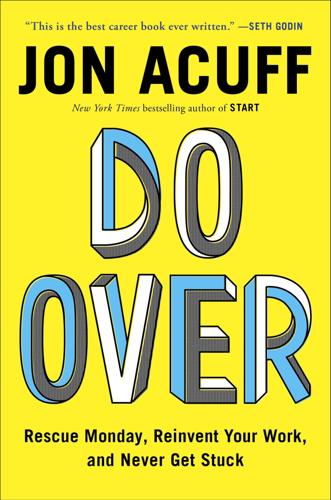
Do Over: Rescue Monday, Reinvent Your Work, and Never Get Stuck
by
Jon Acuff
Published 6 Apr 2015
Beware the temptation to isolate or hide during your Do Over. We need other people. We need friends. We need advocates. We need relationships as a critical part of our Career Savings Account. Investment 2: Skills Everybody wants to be somebody: Nobody wants to grow. —JOHANN WOLFGANG VON GOETHE If your best friend was a horrible mechanic, you wouldn’t ask him to fix your car a second time. If your closest confidant was a terrible accountant, you wouldn’t ask him to do your taxes. If your lifelong buddy was terrifically irresponsible, you wouldn’t ask him to watch your dog while you were out of town.
…
In my frustration I stayed stuck because I didn’t grab the right hammer. I hope you will. Every skill can be a hammer. Start banging. Career Ceilings were meant to be broken. Investment 3: Character A talent is formed in stillness, a character in the world’s torrent. —JOHANN WOLFGANG VON GOETHE If relationships are who you know and skills are what you do, character is who you are. Since religion, science and philosophy have been trying to get to the bottom of that question for thousands of years I thought I would go ahead and figure it out for us all in this next section.
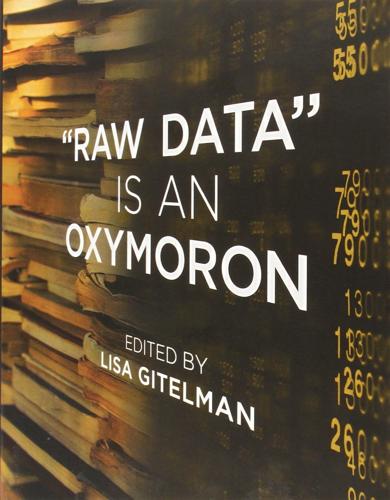
Raw Data Is an Oxymoron
by
Lisa Gitelman
Published 25 Jan 2013
Ethische Methodenlehre, 1st Section, §50: “He is the midwife of his thoughts,” on the teacher-student relationship. 46. Luhmann, “Kommunikation mit Zettelkästen,” 57. 47. Walter Benjamin, Einbahnstraße, in Gesammelte Schriften, vol. 4 (Frankfurt am Main: Suhrkamp Verlag, 1928/1981), 98–140, at 103. 48. Kleist, “Über die allmähliche Verfertigung der Gedanken beim Reden,” 323. 49. Johann Wolfgang von Goethe, The Autobiography of Johann Wolfgang von Goethe, vol. 2, trans. John Oxenford (Chicago: University of Chicago Press, 1974), 311f. 50. Kittler, Die Nacht der Substanz, 16. For a more strictly computer-archeological reading, see also Kittler “Memories Are Made of You,” in Schrift, Medien, Kognition. Über die Exteriorität des Geistes, vol. 19 of Probleme der Semiotik, ed.
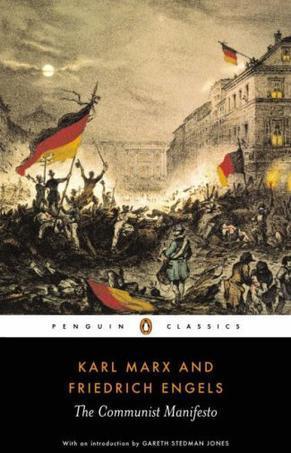
The Communist Manifesto
by
Karl Marx
and
Friedrich Engels
Published 1 Aug 2002
Forster, 0-553-21323-7 THE DIARY OF A YOUNG GIRL, Anne Frank, 0-553-57712-3 ANNE FRANK'S TALES FROM THE SECRET ANNEX, Anne Frank, 0-553-58638-6 THE AUTOBIOGRAPHY AND OTHER WRITINGS, Benjamin Franklin, 0-553-21075-0 THE YELLOW WALLPAPER AND OTHER WRITINGS, Charlotte Perkins Gilman, 0-553-21375-X FAUST: FIRST PART, Johann Wolfgang von Goethe, 0-553-21348-2 THE WIND IN THE WILLOWS, Kenneth Grahame, 0-553-21368-7 THE COMPLETE FAIRY TALES OF THE BROTHERS GRIMM, The Brothers Grimm, 0-553-38216-0 ROOTS, Alex Haley, 0-440-17464-3 FAR FROM THE MADDING CROWD, Thomas Hardy, 0-553-21331-8 JUDE THE OBSCURE, Thomas Hardy, 0-553-21191-9 THE MAYOR OF CASTERBRIDGE, Thomas Hardy, 0-553-21024-6 THE RETURN OF THE NATIVE, Thomas Hardy, 0-553-21269-9 TESS OF THE D'URBERVILLES, Thomas Hardy, 0-553-21168-4 THE HOUSE OF THE SEVEN GABLES, Nathaniel Hawthorne, 0-553-21270-2 THE SCARLET LETTER, Nathaniel Hawthorne, 0-553-21009-2 THE FAIRY TALES OF HERMANN HESSE, Hermann Hesse, 0-553-37776-0 SIDDHARTHA, Hermann Hesse, 0-553-20884-5 THE ODYSSEY OF HOMER, Homer, 0-553-21399-7 THE HUNCHBACK OF NOTRE DAME, Victor Hugo, 0-553-21370-9 FOUR GREAT PLAYS, Henrik Ibsen, 0-553-21280-X THE PORTRAIT OF A LADY, Henry James, 0-553-21127-7 THE TURN OF THE SCREW AND OTHER SHORT FICTION, Henry James, 0-553-21059-9 A COUNTRY DOCTOR, Sarah Orne Jewett, 0-553-21498-5 DUBLINERS, James Joyce, 0-553-21380-6 A PORTRAIT OF THE ARTIST AS A YOUNG MAN, James Joyce, 0-553-21404-7 THE METAMORPHOSIS, Franz Kafka, 0-553-21369-5 THE STORY OF MY LIFE, Helen Keller, 0-553-21387-3 CAPTAINS COURAGEOUS, Rudyard Kipling, 0-553-21190-0 THE JUNGLE BOOKS, Rudyard Kipling, 0-553-21199-4 KIM, Rudyard Kipling, 0-553-21332-6 LADY CHATTERLEY'S LOVER, D.
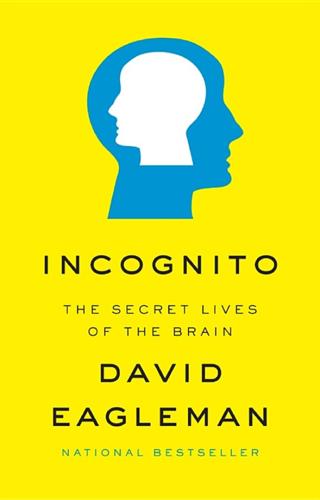
Incognito: The Secret Lives of the Brain
by
David Eagleman
Published 29 May 2011
He admitted he had no idea how ideas actually came to him—they simply came to him. William Blake related a similar experience, reporting of his long narrative poem Milton: “I have written this poem from immediate dictation twelve or sometimes twenty lines at a time without premeditation and even against my will.” Johann Wolfgang von Goethe claimed to have written his novella The Sorrows of Young Werther with practically no conscious input, as though he were holding a pen that moved on its own. And consider the British poet Samuel Taylor Coleridge. He began using opium in 1796, originally for relief from the pain of toothaches and facial neuralgia—but soon he was irreversibly hooked, swigging as much as two quarts of laudanum each week.
…
For many, the fall of the Earth from the center of the universe caused profound unease. No longer could the Earth be considered the paragon of creation: it was now a planet like other planets. This challenge to authority required a change in man’s philosophical conception of the universe. Some two hundred years later, Johann Wolfgang von Goethe commemorated the immensity of Galileo’s discovery: Of all discoveries and opinions, none may have exerted a greater effect on the human spirit.… The world had scarcely become known as round and complete in itself when it was asked to waive the tremendous privilege of being the center of the universe.
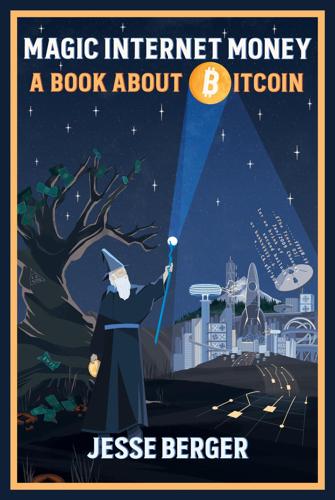
Magic Internet Money: A Book About Bitcoin
by
Jesse Berger
Published 14 Sep 2020
Whether prices are volatile or stable, it stoically accepts them as they come – reflecting life’s changing values and preferences – and dutifully relays the knowledge they signal, making Bitcoin a far superior unit of account. 4.3.1 Time Is Money: Scarcity Abides “Many people take no care of their money till they come nearly to the end of it, and others do just the same with their time.” Johann Wolfgang von Goethe, Writer & Statesman In a very real sense, time is money. Like money, time can be invested to create something of value, and can be traded if the price is right. The inherent scarcity of time in life inspires us to use it efficiently because, if wasted, time cannot be artificially re-created.
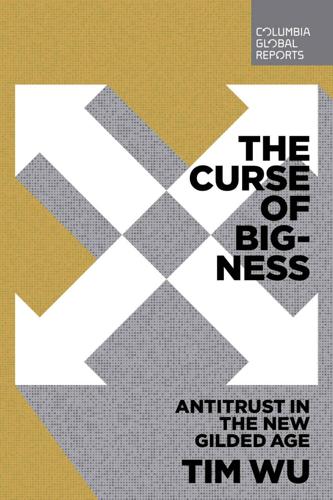
The Curse of Bigness: Antitrust in the New Gilded Age
by
Tim Wu
Published 14 Jun 2018
He was not a particularly good farmer, but found greater success as a grain merchant in Kentucky, and grew to be a prosperous small-business owner. Brandeis’s mother Frederika, the daughter of a Polish court physician, was a devotee of eighteenth-century German authors like Friedrich Schiller and Johann Wolfgang von Goethe, and a moralist who pushed her children to develop “a pure spirit and the highest ideals as to morals and love.” The town of Louisville would figure essentially in what Brandeis would come to stand for. Louisville was no world capital, nor the seat of any corporate empire, but nonetheless a flourishing regional center, in a United States far more economically decentralized than today’s.
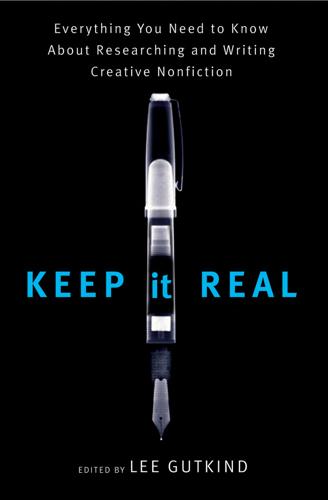
Keep It Real: Everything You Need to Know About Researching and Writing Creative Nonfiction
by
Lee Gutkind
Published 1 Jan 2008
Everyone has a story to tell, and everyone is telling it.” Lorraine Adams, a columnist for the Washington Post, has dubbed this trend the rise of “the nobody memoir.” To trace the arc of memoir through the centuries, from St. Augustine to Mary Karr, would require a book-length manuscript. Memoirists have typically been heavy hitters: Johann Wolfgang von Goethe, Virginia Woolf, Henry David Thoreau, Walt Whitman, E. B. White, Gertrude Stein, Ulysses S. Grant, Mahatma Gandhi, Bill Clinton, Gore Vidal, George Orwell, Leon Trotsky, Benjamin Franklin, Mark Twain, Maya Angelou, Frederick Douglass, Black Elk, Helen Keller, Carl Jung, Jean-Paul Sartre, and on and on.
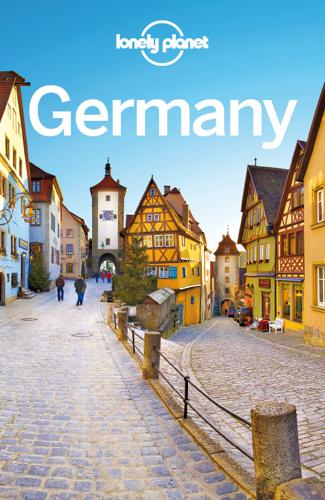
Germany Travel Guide
by
Lonely Planet
Goethe-Haus HISTORIC BUILDING Offline map Google map (www.goethehaus-frankfurt.de; Grosser Hirschgraben 23-25; adult/student/family €7/3/11; 10am-6pm Mon-Sat, 10am-5.30pm Sun; Willy-Brandt-Platz) Completely rebuilt after the war (only the cellar survived Allied bombing), the birthplace of Johann Wolfgang von Goethe (1749–1832) is furnished in the haut-bourgeois style of Goethe’s time, based on an inventory taken when Goethe’s family sold the place. One of the few pieces that actually belonged to the great man is a puppet theatre given to him at age four. Laminated information cards provide background in a variety of languages.
…
Upstairs there’s a peaceful rooftop garden with river views. Mittelmosel-Museum MUSEUM (Casinostrasse 2, Trarbach; adult/youth €2.50/1; 10am-5pm Tue-Sun Easter-Oct) If you’d like to learn more about Traben-Trarbach and its castles, head to this homey local history museum, housed in a furnished baroque villa proud of having hosted Johann Wolfgang von Goethe for a few hours in 1792. Fahrradmuseum MUSEUM (Moselstrasse 2, Trarbach; 2-6pm Mon-Fri, 10am-3pm Sat, 10am-1pm Sun May-Oct, 10am-1pm Sat & Sun Apr) To check out a collection of historic bicycles, head up the stairs from the Wein-Kontor wine shop. Grevenburg RUINS The Grevenburg castle, built in the mid-1300s, sits high in the craggy hills above Trarbach.
…
Weimar Top Sights Fürstengruft A5 Goethe Nationalmuseum B3 Park an der Ilm C4 Schiller Haus B2 Sights 1 Bauhaus Museum A2 2 Goethe Haus B3 3 Goethes Gartenhaus D4 4 Goethe-Schiller Denkmal A2 5 Haus am Horn D4 6 Herzogin Anna Amalia Bibliothek C2 7 Liszt-Haus B4 8 Römisches Haus D5 9 Schlossmuseum C1 10 Stadtkirche St Peter und Paul B1 11 Weimar Haus A2 12 Wittumspalais A2 Sleeping 13Casa dei ColoriB1 14Hotel AmalienhofA3 15 Hotel Anna Amalia A1 16 Hotel Elephant Weimar B2 17 Hotel zur Sonne A1 18 Labyrinth Hostel A1 Eating 19 ACC B2 Anna Amalia (see 16) 20 Anno 1900 A1 21EstragonB2 22 Gasthaus zum Weissen Schwan B3 23Jo HannsA1 24 Residenz-Café B2 25VersiliaB3 Entertainment 26 Deutsches Nationaltheater A2 27 Kasseturm A1 28 Studentenclub Schützengasse A2 Sights Goethe Nationalmuseum MUSEUM Offline map Google map (Frauenplan 1; combined ticket Goethe Haus & permanent museum exhibition adult/concession €10.50/8.50, permanent museum exhibition only adult/concession €6.50/5.50; 9am-6pm Tue-Fri & Sun, to 7pm Sat) No other individual is as closely associated with Weimar as Johann Wolfgang von Goethe, who lived in this town from 1775 until his death in 1832, the last 50 years in what is now the Goethe Haus Offline map Google map (545 401; Frauenplan 1; adult/concession €8.50/7; 9am-6pm Tue-Fri & Sun, to 7pm Sat Apr-Sep, 9am-6pm Tue-Sun Oct, to 4pm Tue-Sun Nov-Mar). This is where he worked, studied, researched and pennedFaust and other immortal works.

Pocket Rough Guide Istanbul
by
Rough Guides
Published 26 Nov 2023
Showcasing the invaluable contribution made to civilization by scientists and inventors from the Islamic world between the eighth and sixteenth centuries, this museum is housed in what were the imperial stables, built into the inside of the walls encircling Gülhane Park. If you’re looking for genuine artefacts, be prepared to be disappointed, as all the exhibits are meticulous models made at Johann Wolfgang von Goethe University, Frankfurt. The replicas are impressive, however, and are beautifully displayed artworks in their own right, not least an elephant-shaped water clock based on a twelfth-century original, and a planetarium based on an idea by tenth-century astronomer as-Siğzi. Cağaloğlu Hamamı MAP Kazım İsmail Gürkan Cad 34 1 Sultanahmet cagalogluhamami.com.tr.
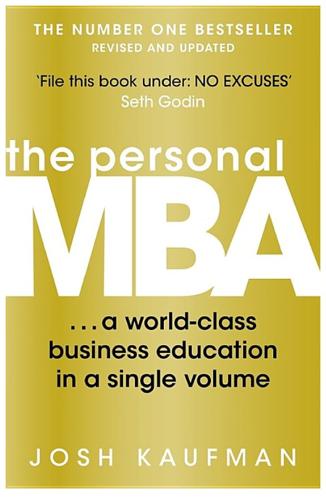
The Personal MBA: A World-Class Business Education in a Single Volume
by
Josh Kaufman
Published 2 Feb 2011
Each line has its own identity and appeals to a different type of potential customer, even though the clothes may be manufactured using the same processes and the revenues end up in the coffers of the same company. SHARE THIS CONCEPT: http://book.personalmba.com/economic-values/ Relative Importance Testing Things which matter most must never be at the mercy of things which matter least. —JOHANN WOLFGANG VON GOETHE, NINETEENTH-CENTURY DRAMATIST, POET, AND POLYMATH The tricky thing about trying to figure out what people want is that people want everything. Here’s proof: bring together a group of potential customers for a focus group. Ask each participant to rate the importance of each of the nine Economic Values for your offering on a scale of 0 to 10.
…
Human attention requires novelty to sustain itself. Continue to offer something new, and people will pay attention to what you have to offer. SHARE THIS CONCEPT: http://book.personalmba.com/novelty/ 8 WORKING WITH YOURSELF To think is easy. To act is difficult. To act as one thinks is the most difficult. —JOHANN WOLFGANG VON GOETHE, POET, DRAMATIST, AND POLYMATH Your body and mind are the tools you use to get things done. Learning how to work effectively with yourself makes accomplishing what you set out to achieve easier and more enjoyable. In today’s busy business environment, it’s easy to get stressed about everything that needs to be done.
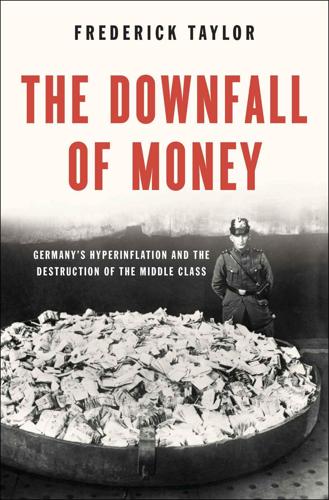
The Downfall of Money: Germany's Hyperinflation and the Destruction of the Middle Class
by
Frederick Taylor
Published 16 Sep 2013
The constitution-makers who met in early 1919 had been forced to evacuate themselves from Berlin to this attractive, modest-sized central German city (population at the end of the Second World War around 35,000), because the capital was still too violent and politically unstable for their safety to be guaranteed. They remained there until the situation in Berlin was somewhat restored. Weimar had become famous 120 years or so previously as the home of the great writer Johann Wolfgang von Goethe, Germany’s Shakespeare - and more. In a long life, spanning the eighteenth and nineteenth centuries, Goethe had also gained renown as a statesman and scientist. A fitting environment for Germany’s new start, perhaps, despite the circumstances. From now on, though, to the wider world the first thing the name would bring to mind would no longer be the greatest achievements of the German enlightenment.
…
These, then, were the distinguished, patriotic and apparently reliable officials who unwittingly set Germany and its currency on the road to ruin. Both were lawyers by education and training rather than economists or financiers. Both were very much men of the pre-war era. Glasenapp, in particular, was a man of broad culture, with a deep interest in the works of Germany’s and perhaps Europe’s greatest polymath, Johann Wolfgang von Goethe (for many years he served on the committee of the Weimar-based Goethe Society). In fact, Glasenapp did a bit of writing himself, reportedly setting his son’s translations of Indian poetry into polished German verse in his head while walking to work in the morning.1 Having played such a leading role in the growth of Germany’s indebtedness during the previous four or more years, the Reichsbank’s response to the armistice and the threat of a normalisation of the country’s economy was to demand austerity from the revolutionary government, while, paradoxically, at the same time the dubious underpinnings of the money supply, which implicitly encouraged the debauchment of the currency, remained in place.
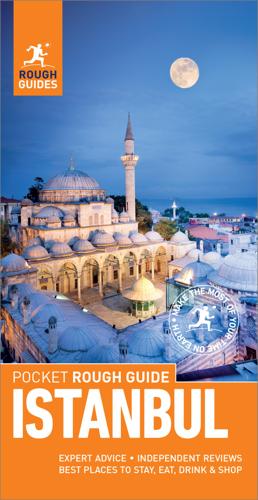
Pocket Rough Guide Istanbul (Travel Guide eBook)
by
Rough Guides
Published 24 May 2019
Showcasing the invaluable contribution made to civilization by scientists and inventors from the Islamic world between the eighth and sixteenth centuries, this museum is housed in what were the imperial stables, built into the inside of the walls encircling Gülhane Park. If you’re looking for genuine artefacts, be prepared to be disappointed, as all the exhibits are meticulous models made at Johann Wolfgang von Goethe University, Frankfurt. The replicas are impressive, however, and are beautifully displayed artworks in their own right, not least an elephant-shaped water clock based on a twelfth-century original and a planetarium based on an idea by tenth-century astronomer as-Siğzi. Men getting massages in Cağaloğlu Hamamı Getty Images Cağaloğlu Hamamı MAP Kazım İsmail Gürkan Cad 34 1 Sultanahmet 0212 522 2424, cagalogluhamami.com.tr.
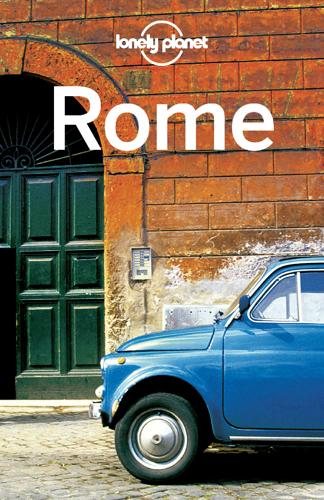
Rome
by
Lonely Planet
Palazzo Valentini Archaeological Site Offline map Google map ( 06 32810; Via IV Novembre 119/A; adult/reduced €6/4, advance booking fee €1.50; 9.30am-5pm Wed-Mon, tours every 45 min; Spagna) Underneath a grand mansion that’s been the seat of the Province of Rome since 1873, the archaeological remains of several lavish ancient Roman houses have been uncovered, and the excavated fragments have been turned into a fascinating multi-media ‘experience’, which takes you on a virtual tour of the dwellings, complete with sound effects, projected frescoes and glimpses of ancient life as it might have been lived in the area around the buildings. Casa di Goethe Museum Offline map Google map ( 06 326 50 412; www.casadigoethe.it; Via del Corso 18; adult/reduced €4/3; 10am-6pm Tue-Sun; Flaminio) A gathering place for German intellectuals, the Via del Corso apartment where Johann Wolfgang von Goethe enjoyed a happy Italian sojourn from 1786 to 1788, but complained of the noisy neighbours, is now a lovingly maintained museum. Exhibits include documents and some fascinating drawings and etchings. With advance permission, ardent fans can use the library full of first editions. Villa Medici Palazzo Offline map Google map ( 06 6 76 11; www.villamedici.it, in French & Italian; Viale Trinità dei Monti 1; open for events; Spagna) This striking Renaissance palace has been home to the French Academy since the early 19th century.
…
Roman Reads Roman Tales (Alberto Moravia) That Awful Mess on Via Merulana (Carlo Emilio Gadda) The Secrets of Rome, Love & Death in the Eternal City (Corrado Augias) Romantic Visions In the 18th century the city was a hotbed of literary activity as historians and Grand Tourists poured in from northern Europe. The German author Johann Wolfgang von Goethe captures the elation of discovering ancient Rome and the colours of the modern city in his celebrated travelogue Italian Journey (1817). Rome was also a magnet for the English Romantic poets. John Keats, Lord Byron, Percy Bysshe Shelley, Mary Shelley and other writers all spent time in the city.
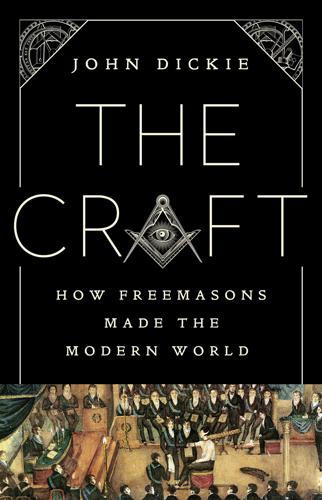
The Craft: How Freemasons Made the Modern World
by
John Dickie
Published 3 Aug 2020
Five Kings of England and, including Washington, no fewer than fourteen Presidents of the United States of America have been Masons. Freemasonry can boast a long list of writers, such as: Scotland’s national poet, Robert Burns; the author of Dangerous Liaisons (1782), Pierre Choderlos de Laclos; Sherlock Holmes’s creator, Arthur Conan Doyle; and the towering figure of German letters, Johann Wolfgang von Goethe. Numerous composers, including Wolfgang Amadeus Mozart, Joseph Haydn and Jean Sibelius, have been ‘on the Square’. There are sportsmen in the list, like golfer Arnold Palmer, Caribbean cricket giant Clive Lloyd, boxer Sugar Ray Robinson and basketball player Shaquille O’Neal. There are also many entertainers, ranging from Harry Houdini and Peter Sellers to Nat King Cole and Oliver Hardy.
…
The bulk of the membership was made up of government officials, journalists and academics. Businessmen were put off by the extremely demanding curriculum of Enlightenment reading. The most famous Illuminatus of them all had no such aversion to study: the writer and senior advisor to Grand Duke Karl August of Saxe-Weimar-Eisenach, Johann Wolfgang von Goethe. It is possible that Goethe joined simply to keep a governmental eye on the society. The Illuminati grew despite being in a state of flux. Knigge, who formally only belonged to the second tier of the organisation, wrote desperate letters to Weishaupt asking to know more. He had been reduced to stringing his members along when they demanded to be rewarded for all their studying with access to higher Degrees and superior knowledge.
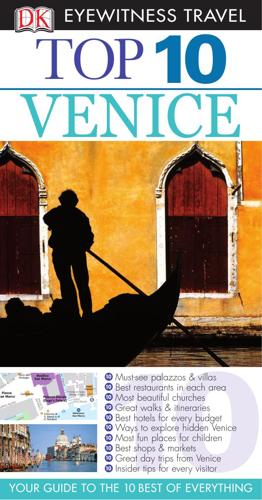
Top 10 Venice
by
Gillian Price
Published 21 Feb 2011
Coryate $ Thomas The very first English- language traveller to write a detailed description of Venice, this eccentric gentleman from Somerset, England (1577–1617) compiled Crudities, with Observations of Venice (1611): “Such is the rarenesse of the situation of Venice, that it doth even amaze and drive into admiration all strangers that upon their first arrival behold the same.” % Johann Wolfgang von Goethe The story goes that this German literary giant (1749– 1832) had his first ever view of the sea from Venice’s CampaJohann Wolfgang nile. Attracted by the von Goethe lands south of the Alps, his first visit was an experience of personal renewal, the account published William Shakespeare as Italian Journey (1786–8).
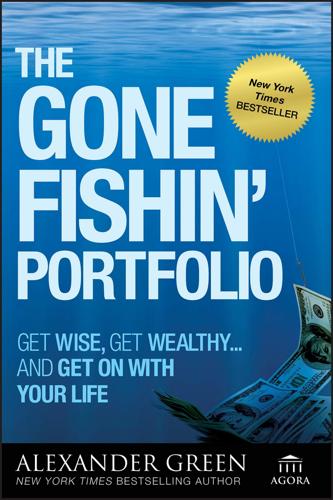
The Gone Fishin' Portfolio: Get Wise, Get Wealthy...and Get on With Your Life
by
Alexander Green
Published 15 Sep 2008
Finance, Personal. I. Title. HG4521.G693 2008 332.6—dc22 2008017690 This book is dedicated to Judith and Braxton Green. If there is one thing I know how to do, it’s pick the right parents. If a man writes a book, let him set down only what he knows. I have guesses enough of my own. Johann Wolfgang von Goethe FOREWORD You have no idea what good hands you’re in. I do . . . You see, at this point I’m now one of the world’s most widely read investment analysts. I’m not quite sure how I got here. I don’t have a gimmick. I don’t promise zillion-percent returns overnight. I think I’m here because I’ve given consistently good advice over my career.
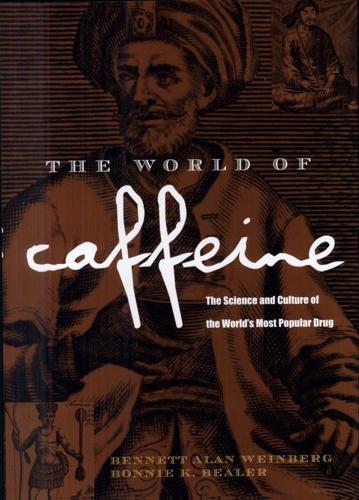
The World of Caffeine: The Science and Culture of the World's Most Popular Drug
by
Bennett Alan Weinberg
and
Bonnie K. Bealer
Published 5 Dec 2000
prologue The Discovery of Caffeine Although caffeine-bearing plants may have been used for their pharmacological effects from before recorded history, it was not until the flowering of interest in plant chemistry in Europe in the beginning of the nineteenth century that caffeine itself was first isolated and named. The discovery was made by Friedlieb Ferdinand Runge, a young physician, in 1819 as a result of an encounter with the seventy-year-old Johann Wolfgang von Goethe, baron of the German empire, one of the greatest poets the world had seen, and the preeminent intellectual and cultural hero of the Europe of his day. Runge was born in Billwärder, a small town near Hamburg, Germany, on February 8, 1794, a pastor’s son and the third of what was to become a family of seven children.
…
This kind of insidious confounder can easily engender false claims of a causal connection between coffee or caffeine and health problems.9 notes OVERVIEW 1. Henry Watts, ed., Dictionary of Chemistry, vol. I, p. 707. 2. John Evelyn, Works, note, p. 11. 3. Sir Richard Steele, Tatler, April 12, 1709. PROLOGUE 1. Johann Wolfgang von Goethe, Versuch die Metamorphose der Pflanzen zu erklären (Attempts to Illustrate the Metamorphosis of Plants). In this book Goethe takes his place as a pioneer in the theory of evolution. 2. As P.Walden, in his essay “Goethe and Chemistry,” states, “At Weimar the time had come for Goethe to reexamine his chemical knowledge and concepts, to transfer them into the realm of practice and reality, simultaneously, however, to give them a more solid theoretical foundation” (George Urdang, Goethe and Pharmacy, p. 15). 3.
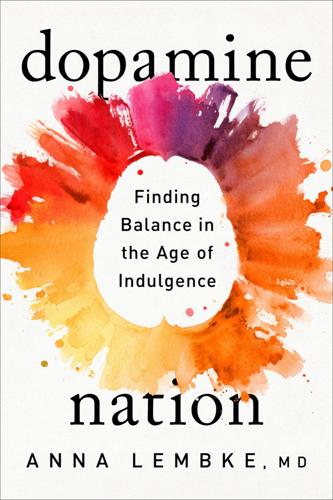
Dopamine Nation: Finding Balance in the Age of Indulgence
by
Anna Lembke
Published 24 Aug 2021
In the 1970s, social scientists Richard Solomon and John Corbit called this reciprocal relationship between pleasure and pain the opponent-process theory: “Any prolonged or repeated departures from hedonic or affective neutrality . . . have a cost.” That cost is an “after-reaction” that is opposite in value to the stimulus. Or as the old saying goes, What goes up must come down. As it turns out, many physiologic processes in the body are governed by similar self-regulating systems. For example, Johann Wolfgang von Goethe, Ewald Hering, and others have demonstrated how color perception is governed by an opponent-process system. Looking closely at one color for a sustained period spontaneously produces an image of its “opposing” color in the viewer’s eye. Stare at a green image against a white background for a period of time, and then look away at a blank white page, and you will see how your brain creates a red afterimage.
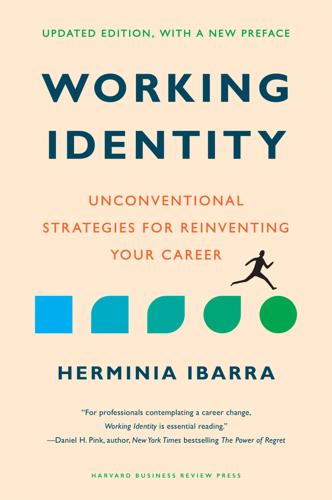
Working Identity, Updated Edition, With a New Preface: Unconventional Strategies for Reinventing Your Career
by
Herminia Ibarra
Published 17 Oct 2023
. | Self-actualization (Psychology) Classification: LCC HF5384 .I23 2023 (print) | LCC HF5384 (ebook) | DDC 650.14—dc23/eng/20230614 LC record available at https://lccn.loc.gov/2023013183 LC ebook record available at https://lccn.loc.gov/2023013184 ISBN: 978-1-64782-556-0 eISBN: 978-1-64782-557-7 Then indecision brings its own delays, And days are lost lamenting over lost days. Are you in earnest? Seize this very minute; What you can do, or dream you can do, begin it; Boldness has genius, power and magic in it. —Johann Wolfgang von Goethe CONTENTS Preface 1 Reinventing Yourself PART ONE Identity in Transition 2 Possible Selves 3 Between Identities 4 Deep Change PART TWO Identity in Practice 5 Crafting Experiments 6 Shifting Connections 7 Making Sense Conclusion: Becoming Yourself Appendix: Studying Career Transitions Notes Index Acknowledgments About the Author PREFACE “Am I doing the right work for me, and should I change direction?”
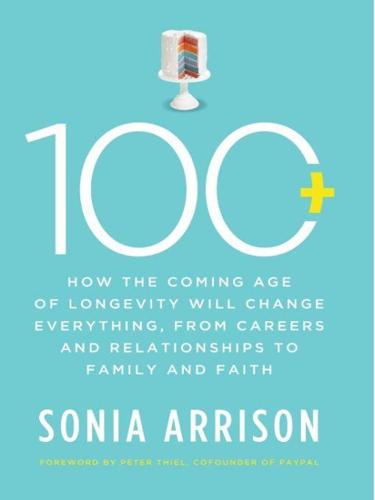
100 Plus: How the Coming Age of Longevity Will Change Everything, From Careers and Relationships to Family And
by
Sonia Arrison
Published 22 Aug 2011
There have been many iterations of the Faust theme by various writers, but the first version appeared in 1587 by an anonymous German author. The general story is that Dr. Faust makes a bargain with the devil: in exchange for wealth and power, Faust sells his soul to the devil. Although the story dates back to 1587, it wasn’t until Johann Wolfgang von Goethe took the legend up around 1770 that Dr. Faust joined the longevity literature. In Goethe’s version, Faust seeks youth in addition to money and power. According to historian Lucian Boia, “Here Faust swallows a witch’s potion designed to restore his youth and make him fall in love.”19 Goethe’s play was followed by a popular 1859 opera by Charles Gounod that shows the “miracle of rejuvenation” on stage, after which the newly young man falls in love.20 Risking eternity in hell for youth is a bad decision, but other stories warn that extended longevity could turn people into monsters, potentially creating hell on earth.
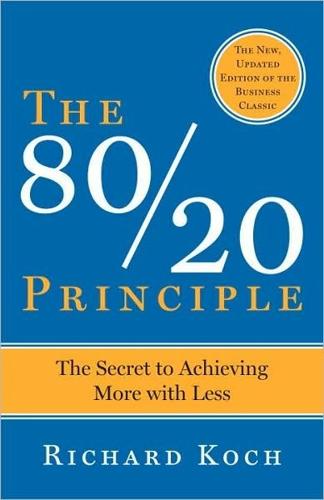
The 80/20 Principle: The Secret of Achieving More With Less
by
Richard Koch
Published 15 Dec 1999
Those who want a time revolution need to link together their past, present, and future, as suggested above by Figure 35. Behind the issue of how we allocate time lurks the even more fundamental issue of what we want to get out of our lives. 11 YOU CAN ALWAYS GET WHAT YOU WANT Things that matter most Must never be at the mercy of things that matter least. JOHANN WOLFGANG VON GOETHE Work out what you want from life. In the 1980s phrase, aim to “have it all.” Everything you want should be yours: the type of work you want; the relationships you need; the social, mental, and aesthetic stimulation that will make you happy and fulfilled; the money you require for the lifestyle that is appropriate to you; and any requirement that you may (or may not) have for achievement or service to others.
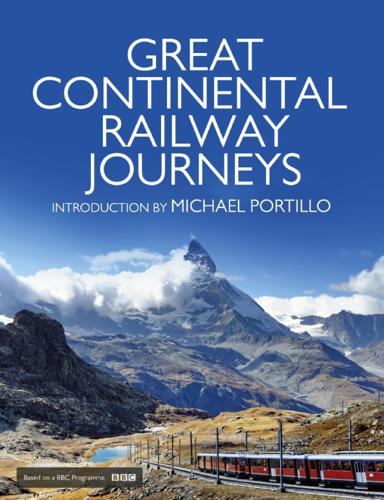
Great Continental Railway Journeys
by
Michael Portillo
Published 21 Oct 2015
From here, academics seeking inspiration would set forth on what became known as the ‘Philosopher’s Way’, a scenic elevated route through woods where stunning views of the town could be glimpsed in a climate that’s been compared to Tuscany. Correspondingly, they found inspiration in nature, more exotic than the norm, the same key ingredient that would fuel the work of Romantics in literature, philosophy, art and music. The most famous figure known to have trodden that thought-provoking path is Johann Wolfgang von Goethe (1749–1832), considered the greatest German literary figure of the modern era. A poet, playwright, novelist, scientist and statesman, Goethe found more satisfaction in the unspoiled vistas of Heidelberg than he did in run-down Rome. But he was in good company. Joseph von Eichendorff (1788–1857) studied law at Heidelberg in 1808, before beginning to author his famously lyrical poems.
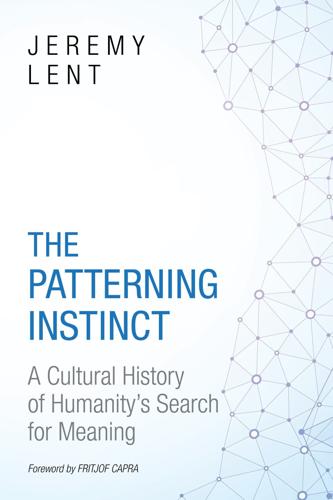
The Patterning Instinct: A Cultural History of Humanity's Search for Meaning
by
Jeremy Lent
Published 22 May 2017
Rational philosophy, complained poet John Keats, will “clip an Angel's wings, Conquer all mysteries by rule and line…Unweave a rainbow.” These attacks on science created intellectual battle lines that laid the groundwork for a counterattack by rationalists accusing the Romantics of indulging in sentimentality.14 On the Continent, poet and statesman Johann Wolfgang von Goethe refused to go along with this division being formed between science and beauty. Goethe, who founded the science of morphology—the study of forms—instead saw beauty, like Leonardo centuries earlier did, as “a manifestation of secret natural laws, which otherwise would have been hidden from us forever.”
…
Lorenz”; John Dugdale, “Richard Dawkins Named World's Top Thinker in Poll,” Guardian, April 25, 2013. 44. Thomas S. Kuhn, The Structure of Scientific Revolutions (Chicago: University of Chicago Press, 1996), 64. 45. Ibid., 85–86, 151–52. Chapter 20. Consuming the Earth in the Modern Era 1. Johann Wolfgang von Goethe, “The Sorcerer's Apprentice,” trans. Brigitte Dubiel (1797). I am indebted to Steve Hagen for pointing out this work as a parable for the power of technology. See Steve Hagen, Buddhism Is Not What You Think: Finding Freedom beyond Beliefs (San Francisco: HarperCollins, 2004), 28–29. 2.
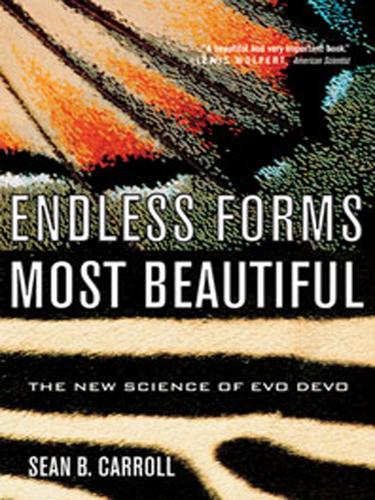
Endless Forms Most Beautiful: The New Science of Evo Devo
by
Sean B. Carroll
Published 10 Apr 2005
But even without the active opposition, we can do better, and we have to do better. Evo Devo and the Evolution/Creation Struggle If you are convinced of a matter, you must take sides or you don’t deserve to succeed. —Johann Wolfgang von Goethe, Propylaea (1798) In the short time between the first and second edition of The Origin of Species , Darwin inserted three more words into that famous closing paragraph, adding “by the Creator” to rewrite the phrase as “having been originally breathed by the Creator into a few forms or into one…” Darwin later expressed his regret for doing so in a letter to botanist J.
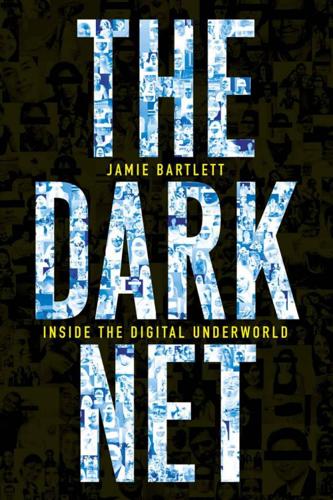
The Dark Net
by
Jamie Bartlett
Published 20 Aug 2014
And because thinspo, tricks and tips, suicide methods and diets are put forward by a seemingly caring community of people, it is easy to forget just how deadly the advice can be. It could be said that almost any action, no matter how misguided, can quickly become acceptable – even admirable – if you believe that others are doing it too. In 1774 the German novelist Johann Wolfgang von Goethe published his first novel, The Sorrows of Young Werther, in which his thoughtful young protagonist takes his life after failing in his endeavours to be with the woman he loved. The book sparked a spate of copycat suicides across Europe by young men who had found themselves in a similar predicament.
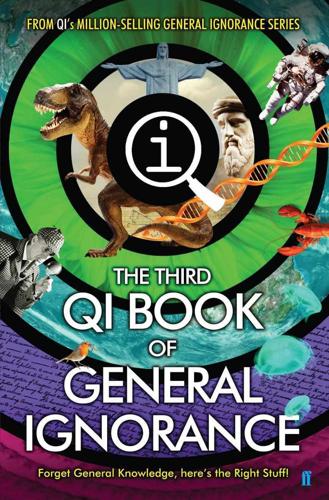
QI: The Third Book of General Ignorance (Qi: Book of General Ignorance)
by
John Lloyd
and
John Mitchinson
Published 28 Sep 2015
They are made of a type of iron called goethite, and limpets use them to cling to rocks with a vice-like grip and excavate them like a tiny JCB. Johann Georg Lenz (1748–1832) of the University of Jena discovered goethite in 1806. He named it after his friend, the writer and philosopher Johann Wolfgang von Goethe (1749–1832). Goethe had become obsessed with mineralogy in his twenties, as a result of his plan to re-open a medieval silver mine in the Harz mountains. By the time he died, he had amassed 17,800 samples – the largest private collection of rocks and minerals in Europe. Blue whales, by the way, don’t have any teeth at all.
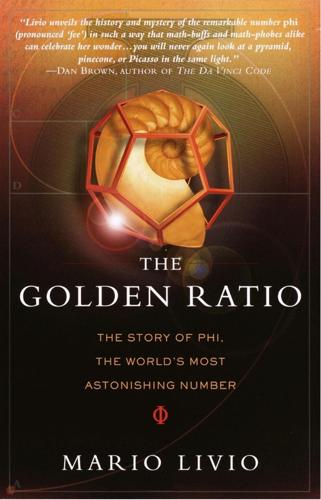
The Golden Ratio: The Story of Phi, the World's Most Astonishing Number
by
Mario Livio
Published 23 Sep 2003
First, there can be poems about the Golden Ratio or the Fibonacci numbers themselves (e.g., “Constantly Mean” by Paul Bruckman; presented in Chapter 4) or about geometrical shapes or phenomena that are closely related to the Golden Ratio. Second, there can be poems in which the Golden Ratio or Fibonacci numbers are somehow utilized in constructing the form, pattern, or rhythm. Examples of the first type are provided by a humorous poem by J. A. Lindon, by Johann Wolfgang von Goethe's dramatic poem “Faust,” and by Oliver Wendell Holmes s poem “The Chambered Nautilus.” Martin Gardner used Lindon's short poem to open the chapter on Fibonacci in his book Mathematical Circus. Referring to the recursive relation which defines the Fibonacci sequence, the poem reads: Each wife of Fibonacci, Eating nothing that wasn't starchy, Weighed as much as the two before her, His fifth was some signora!
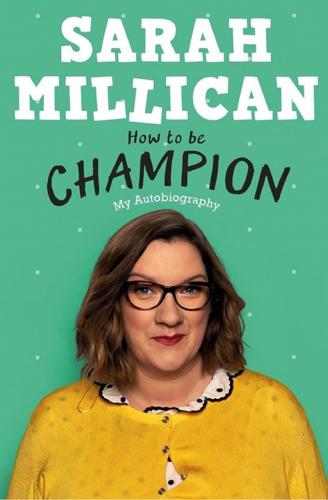
How to Be Champion: My Autobiography
by
Sarah Millican
Published 16 Apr 2018
I didn’t want the kids who couldn’t afford to go to think that this would in any way stop them from having a great life. Sure, if you want to be a doctor or lawyer, there’s no way around it. But there are plenty of jobs where work experience and being keen and willing to learn can get you a foot in the door. A quote that always gives me fire in my belly is by Johann Wolfgang von Goethe: ‘Whatever you can do or dream you can, begin it. Boldness has genius, power and magic in it.’ * It was in this job that I met my first husband. We had a lovely time for about seven years. To see how this turned out, skip to the chapter entitled ‘Divorce’. * By this time I was married and living in a rented flat which turned out to be incredibly damp.
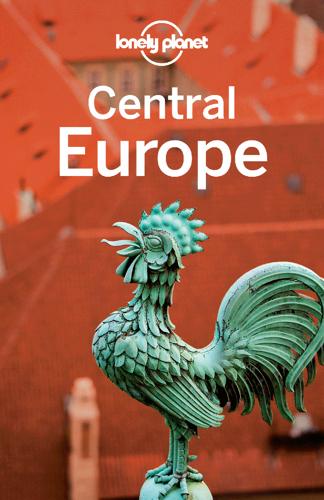
Central Europe Travel Guide
by
Lonely Planet
BEWITCHING HARZ The Harz Mountains constitute a mini-Alpine region straddling Saxony-Anhalt and Lower Saxony. Here, medieval castles overlook fairy-tale historic towns, while there are caves, mines and numerous hiking trails to explore. The region’s highest – and most famous – mountain is the Brocken, where one-time visitor Johann Wolfgang von Goethe set the ‘Walpurgisnacht’ chapter of his play Faust . His inspiration in turn came from folk tales depicting Walpurgisnacht, or Hexennacht (witches’ night), as an annual witches’ coven. Every 30 April to 1 May it’s celebrated enthusiastically across the Harz region. Goslar Goslar is a truly stunning 1000-year-old city with beautifully preserved half-timbered buildings and an impressive Markt .
…
East of Römerberg, behind the Historischer Garten (which has the remains of Roman and Carolingian foundations), is the Frankfurter Dom (Domplatz 14; museum adult/child €3/2; church 9am-noon & 2.30-8pm) , the coronation site of Holy Roman emperors from 1562 to 1792. It’s dominated by the elegant 15th-century Gothic tower – one of the few structures left standing after the 1944 raids (see the pictures inside). ‘Few people have the imagination for reality’ uttered the ever-pithy Johann Wolfgang von Goethe. Read more quotes at the Goethe-Haus (www.goethehaus-frankfurt.de; Grosser Hirschgraben 23-25; adult/student €5/2.50; 10am-6pm Mon-Sat, 10am-5.30pm Sun) , where he was born in 1749. Museums MUSEUMS Frankfurt’s museum list is long and a mixed bag. To sample them all, buy a 48-hour Museumsufer ticket (€15) .
…
Arts Germany’s meticulously creative population has made major contributions to international culture, particularly during the 18th century when the Saxon courts at Weimar and Dresden attracted some of the greatest minds of Europe. With such rich traditions to fall back on, inspiration has seldom been in short supply for the new generations of German artists, despite the upheavals of the country’s recent history. Literature The undisputed colossus of the German arts was Johann Wolfgang von Goethe: poet, dramatist, painter, politician, scientist, philosopher, landscape gardener and perhaps the last European to achieve the Renaissance ideal of excellence in many fields. His greatest work, the drama Faust, is the definitive version of the legend, showing the archetypal human search for meaning and knowledge.
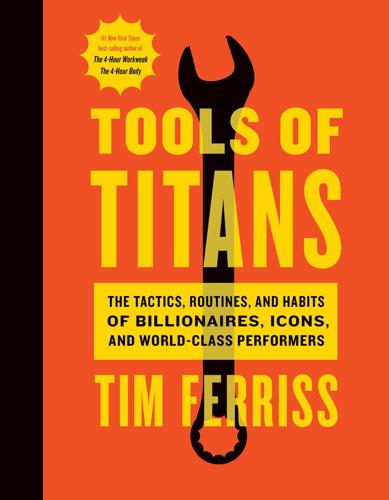
Tools of Titans: The Tactics, Routines, and Habits of Billionaires, Icons, and World-Class Performers
by
Timothy Ferriss
Published 6 Dec 2016
In 2010, he was interviewed by a journalist named Joshua Foer. Under Ed’s Yoda-like tutelage, in 2011, Joshua became the very next American Memory Champion. It took less than a year for Ed to transform a novice into world-class. The result was Foer’s book Moonwalking with Einstein. On the Magic of Johann Wolfgang Von Goethe “Goethe is really cool. . . . At the age of 25, he writes a novel, which is extraordinarily brilliant [The Sorrows of Young Werther], about the troubles of young Goethe. It’s this wonderful story of a young man who falls in love, and it doesn’t really work out so well. . . . Goethe wrote this book by locking himself in a hotel room for 3 months, imagining his five best friends on different chairs, and then discussing with his imaginary friends different possibilities of plot and so on and so forth.
…
Anthony), Missoula: Rape and the Justice System in a College Town (Jon Krakauer) Cho, Margaret: How to Be a Movie Star (William J. Mann) Cooke, Ed: The Age of Wonder (Richard Holmes), Touching the Rock (John M. Hull), In Praise of Idleness: And Other Essays (Bertrand Russell), The Sorrows of Young Werther; Theory of Colours; Maxims and Reflections (Johann Wolfgang von Goethe), The Joyous Cosmology (Alan Watts) Cummings, Whitney: Super Sad True Love Story (Gary Shteyngart), The Drama of the Gifted Child (Alice Miller), The Fantasy Bond (Robert W. Firestone), The Continuum Concept (Jean Liedloff) D’Agostino, Dominic: Personal Power (Tony Robbins), Tripping Over the Truth (Travis Christofferson), The Language of God (Francis Collins), The Screwtape Letters (C.S.
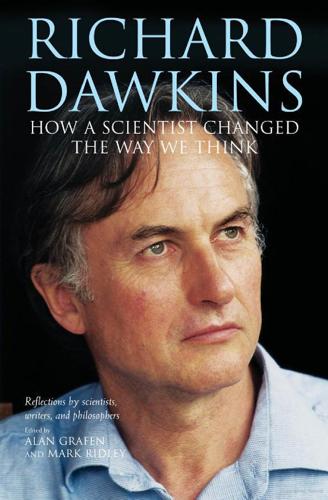
Richard Dawkins: How a Scientist Changed the Way We Think
by
Alan Grafen; Mark Ridley
Published 1 Jan 2006
In the biological realm, and everybody back then was quite explicit that analogy was being drawn with culture, progress meant that among organisms there is an order from simple to complex, from the least to the most, from (as was often said) the monad to the man. (Some put plants at the bottom, some put plants on a different scale.) Organic evolution came into being on the back of biological progress. The early evolutionists, Denis Diderot7 and then Jean Baptiste de Lamarck8 in France, Erasmus Darwin (1794-1796) in England, Johann Wolfgang von Goethe in Germany,9 were all ardent progressionists in culture and biology, and saw their evolutionism as part and parcel of this general picture. The story of evolution and progress continued through the nineteenth century from beginning to end. The notorious pre-(Charles) Darwinian work, The Vestiges of the Natural History of Creation,10 published anonymously but later revealed to be the work of the Scottish publisher and author Robert Chambers, was explicit in its progressionism.
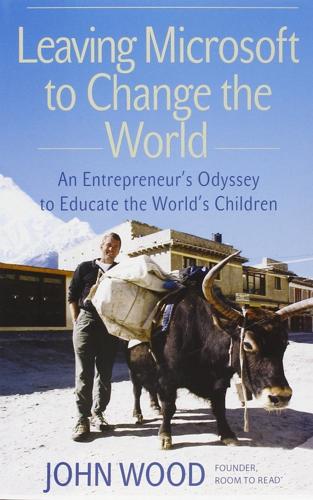
Leaving Microsoft to Change the World: An Entrepreneur's Odyssey to Educate the World's Children
by
John Wood
Published 28 Aug 2006
I try to imagine all the other students who are still in the early years of being helped by Room to Read. If Vu could make this much progress in eight years, what might become of the nearly 1 million other students now attending our schools and eagerly devouring books in our libraries? Johann Wolfgang von Goethe once wrote about Beethoven’s Fifth Symphony, “If all the musicians in the world played this piece simultaneously, the planet would go off its axis.” That’s how I feel about education for the children of the developing world. ACKNOWLEDGMENTS I’VE ALWAYS BELIEVED THAT AN ENTREPRENEUR WILL ONLY SUCCEED IF he surrounds himself with talented and passionate people.
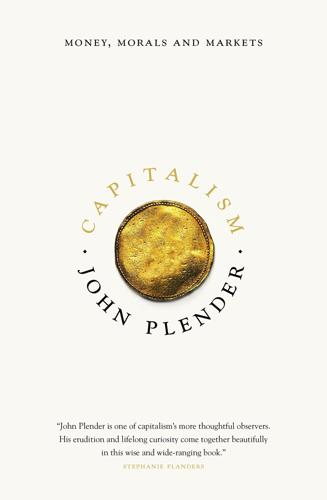
Capitalism: Money, Morals and Markets
by
John Plender
Published 27 Jul 2015
CHAPTER TWELVE CAPITALISM, WARTS AND ALL Has there ever been a time when people really felt at ease with capitalism? That question was put to me by Richard Lambert, former director-general of the Confederation of British Industry and before that editor of the Financial Times, when I explained to him the theme of this book. An interesting light is cast on his question by Johann Wolfgang von Goethe in his great two-part drama Faust, written at the start of the nineteenth century when the industrial revolution in Europe was in its earliest stages. Faust, Part Two, among many other rich themes, incorporates what amounts to a parable of the costs and benefits of capitalist economic development.
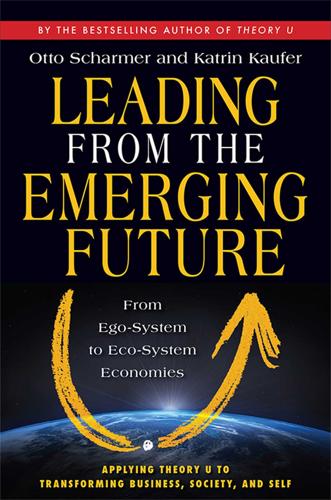
Leading From the Emerging Future: From Ego-System to Eco-System Economies
by
Otto Scharmer
and
Katrin Kaufer
Published 14 Apr 2013
The Indo-European root of the English word leadership, leith, means “to go forth,” “to cross a threshold,” or “to die.”55 Letting go often feels like dying. This deep process of leadership, of letting go and letting the new and unknown come, of dying and being reborn, probably has not changed much over the course of human history. The German poet Johann Wolfgang von Goethe knew it well when he wrote, “And if you don’t know this dying and birth, you are merely a dreary guest on Earth.”56 But what has changed is the structure of the collective social body in which this process is enacted. As indicated in table 3, that social body has changed from a single-pyramid-type structure in which leadership is centralized and hierarchical (1.0), to a more decentralized multipyramid structure in which leadership happens through delegation and competition (2.0), and from there to a more participatory, relational, and networked structure in which multiple stakeholder and interest groups negotiate and engage in dialogue with one another (3.0).
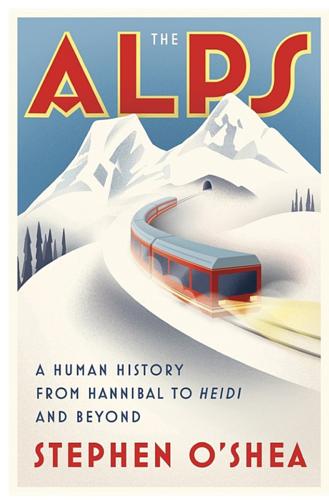
The Alps: A Human History From Hannibal to Heidi and Beyond
by
Stephen O'Shea
Published 21 Feb 2017
“[T]hese distorted mindless beings,” wrote an English traveler in the Alps, “commonly excite one’s disgust by their hideous, loathsome, and uncouth appearance, by their obscene gestures, and by their senseless gabbling.” As for mountainous scenery, the tradition of excoriation is just as withering. Johann Wolfgang von Goethe’s appraisal of the Alps in the 1780s can stand in for dozens of similar denunciations. For Goethe, “These zig-zags and irritating silhouettes and shapeless piles of granite, making the fairest portion of the earth a polar region, cannot be liked by any kindly man.” As with so many present-day Germans careering southward at the wheel of a Mercedes, the great man wanted nothing more than to get the mountains behind him and luxuriate in the embrace of Italy.
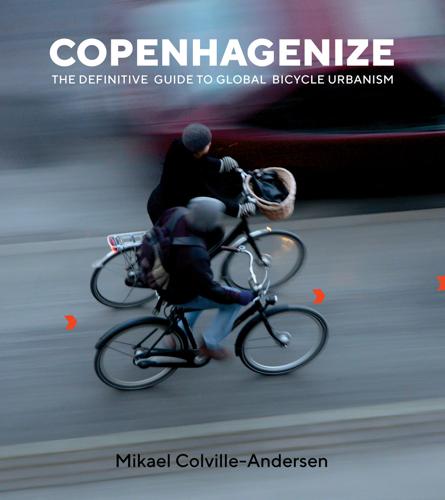
Copenhagenize: The Definitive Guide to Global Bicycle Urbanism
by
Mikael Colville-Andersen
Published 28 Mar 2018
In some cities, the politicians get it, but their ideas die on the doorstep of the engineering department. In others, the professionals get it, but they lack politicians with the chutzpah to make it happen. For every visionary, there is a whole pile of lazy. CHAPTER 8 THE ARROGANCE OF SPACE None are more hopelessly enslaved than those who falsely believe that they are free. Johann Wolfgang von Goethe Freedom is what you do with what’s been done to you. Jean-Paul Sartre Shibuya Crossing in Tokyo, Japan. The world’s busiest pedestrian crossing. When we describe cities, we have a tendency to give them human character traits. It’s a friendly city. A dynamic city. A boring city. Perhaps, then, a city can be arrogant.
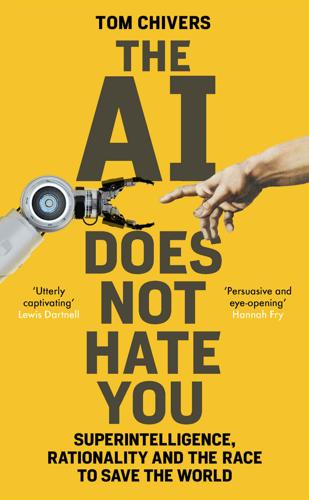
The Rationalist's Guide to the Galaxy: Superintelligent AI and the Geeks Who Are Trying to Save Humanity's Future
by
Tom Chivers
Published 12 Jun 2019
41: The internal double crux 42: Life, the universe and everything Acknowledgements Notes Copyright Introduction ‘I don’t expect your children to die of old age’ Lord and Master! Hear me call. Oh, come the master! Lord, the need is great! The ones I called, the spirits Will not leave. ‘Der Zauberlehrling’, or ‘The Sorcerer’s Apprentice’, Johann Wolfgang von Goethe (1797). Translated using artificial intelligence (specifically, Google Translate). I was sitting in the passenger seat of a huge black BMW SUV, being driven around the byzantine freeways of the southern San Francisco Bay Area on a gorgeous October afternoon, when he said it: ‘I don’t expect your children to die of old age.’
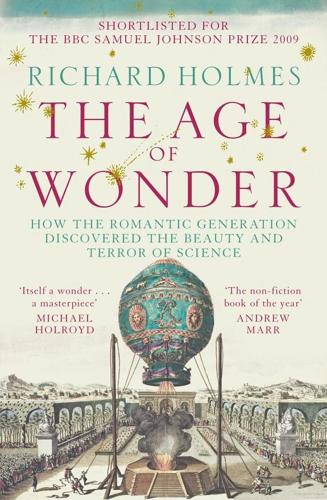
The Age of Wonder
by
Richard Holmes
Published 15 Jan 2008
Crowe, The Extraterrestrial Life Debate, 1750-1900, CUP, 1986 Andrew Cunningham and Nicholas Jardine, Romanticism and the Sciences, CUP, 1990 Erasmus Darwin, The Botanic Garden, A Philosophical Poem with Notes, 1791 Hermione de Almeida, Romantic Medicine and John Keats, OUP, 1991 Adrian Desmond, The Politics of Evolution: Morphology, Medicine and Reform in Radical London, Chicago UP, 1989 Patricia Fara, Pandora’s Breeches: Women, Science and Power in the Age of Enlightenment, Pimlico, 2004 Penelope Fitzgerald, The Blue Flower (a novel), HarperCollins, 1995 Tim Fulford (editor), Romanticism and Science, 1773-1833, a 5-vol anthology, Pickering, 2002 Tim Fulford and Peter Kitson (editors), Romanticism and Colonialism: Writing and Empire, 1780-1830, CUP, 1998 Tim Fulford, Debbie Lee and Peter Kitson, Literature, Science and Exploration in the Romantic Era, CUP, 2004 John Gascoigne, Joseph Banks and the English Enlightenment, CUP, 1994 James Gleick, Isaac Newton, Pantheon Books, 2003 Johann Wolfgang von Goethe, Scientific Studies (edited by Douglas Miller), Suhrkamp edition of Goethe’s Works, vol 12, New York, 1988 Jan Golinski, Science as Public Culture: Chemistry and Enlightenment in Britain 1760-1820, CUP, 1992 Richard Hamblyn, The Invention of Clouds, Picador, 2001 Peter Harman and Simon Mitron, Cambridge Scientific Minds, CUP, 2002 John Herschel, On the Study of Natural Philosophy, 1832 J.E.
…
Fullmer, Young Humphry Davy, American Philosophical Society, 2000, pp328-32 2 JD Fragments, pp2-5 3 Thomas Thorpe, Humphry Davy, Poet and Philosopher, 1896, p10 4 Anne Treneer, The Mercurial Chemist: A Life of Sir Humphry Davy, 1963, p6 5 Local sources, author’s visit to Penzance, May 2006 6 Ibid. 7 JD Memoirs, p68 8 There are various versions of this early poem in the HD Archive: see Paris, vol 1, p29; Treneer, pp4-5; or Fullmer, p13 9 Treneer, p16 10 John Davy quoted in ibid., p21 11 Ibid. 12 Introduction to Humphry Davy on Geology: The 1805 Lectures, pxxix, British Library catalogue X421/22592 13 HD Archive Box 13 (f) pp41-50, Mss notebook dated 1795-97 14 HD Archive Box 13 (f) p61 15 The whole poem, no fewer than thirty-two stanzas, is given in JD Memoirs, pp23-7 16 HD Works 2, p6 17 Jan Golinski, Science as Public Culture: Chemistry and Enlightenment in Britain 1760-1820, CUP, 1992, pp133-42 18 Ibid., p109 19 Johann Wolfgang von Goethe, ‘Maxims and Reflections’, from Goethe, Scientific Studies, edited by Douglas Miller, Suhrkamp edition of Goethe’s Works, vol 12, New York, 1988, p308 20 Reprinted in HD Works 9 21 See Madison Smartt Bell, Lavoisier in the Year One: The Birth of a New Science in the Age of Revolution, Atlas Books, Norton, 2005.
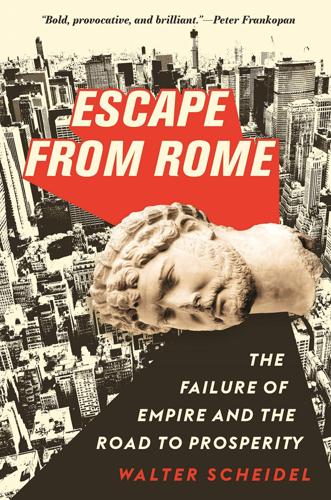
Escape From Rome: The Failure of Empire and the Road to Prosperity
by
Walter Scheidel
Published 14 Oct 2019
If post-Roman polycentrism was the norm, the very existence of the Roman empire was anomalous; otherwise it would have been the other way around.23 In the end, outcomes appear to have been overdetermined: just as the “First Great Divergence” can be traced to multiple factors, so scholars have linked the “(Second) Great Divergence” to a variety of features that have only one thing in common, namely, that they are predicated upon productive competitive polycentrism—or, in other words, the fact that in Europe, Roman power had remained unique. In this respect, the story of modernity is also a story about Rome: Johann Wolfgang von Goethe was right to exclaim in 1786 that “an diesen Ort knüpft sich die ganze Geschichte der Welt an”—“the whole history of the world attaches itself to this spot.” It does indeed, if only thanks to what Edward Gibbon two years later famously called the “the decline and fall of the Roman empire; the greatest, perhaps, and most awful scene, in the history of mankind.”
…
As Wickham rightly observes regarding the survival of states (and not just large empires, but state structures as such), “It is survival that is the norm, failure that is the deviation” (1994: 74), and that this poses a challenge to scholars of post-Roman Western Europe. I hope to have reduced this challenge. 24. Quotes: Johann Wolfgang von Goethe in Italienische Reise (ch. 24, December 3, 1786, on the city of Rome); Gibbon 1788b: 645. 25. Paired by Campbell 2004: 167. The inscription appears as no. 138 in Sartre 1993, and Virgil’s quote is from the Aeneid 1.279. 26. “Getting to Denmark” is a metaphor for establishing political and economic institutions that are highly conducive to human welfare, a concept that goes back to Pritchett and Woolcock (2002: 4) and that has since been popularized especially by Fukuyama 2011: 14.
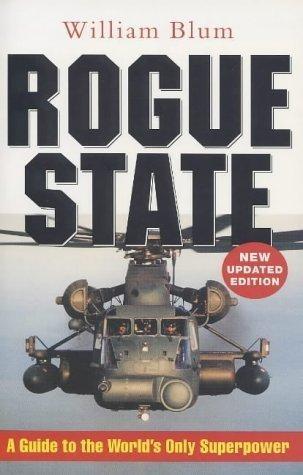
Rogue State: A Guide to the World's Only Superpower
by
William Blum
Published 31 Mar 2002
It should be noted that what is presented herein deals essentially with violations of civil liberties and human rights, and does not include the numerous forms of corporate abuse which are economic in nature or which adversely affect people's health. Many of the violations reflect foreign policy considerations given a domestic twist to bring the "threat" home to US citizens and win support for those policies. None are more hopelessly enslaved than those who falsely believe they are free. Johann Wolfgang von Goethe • In every state, the police or the National Guard and, at times, active-duty army troops, are conducting relentless helicopter drug-surveillance over people's homes and property, setting up roadblocks, interrogating, detaining, harassing and terrifying residents with displays of excessive power. • In hundreds of American cities, young people are being subjected to a nighttime curfew law; many have a daytime curfew as well • The CIA, FBI and other federal agencies are refusing to respond to subpoenas for documents issued by attorneys who need them for the defense of their clients in national security cases in state courts. • US residents are undergoing assorted harassments and penalties from the federal government for having traveled to, spent money in and/or shipped various goods to Cuba, Libya, Iraq, North Korea, Iran, Yugoslavia or other nations of that ilk.
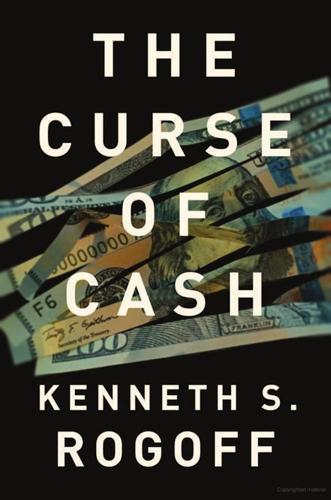
The Curse of Cash
by
Kenneth S Rogoff
Published 29 Aug 2016
The long legacy and storied history of paper money in our psyche and culture is a formidable artifice in itself, not to be taken lightly. For Westerners, the history begins with Marco Polo’s insightful account of paper currency in China, a revelation that stunned Europeans as some form of alchemy. This suspicion is echoed in Johann Wolfgang von Goethe’s Faust, when the demon Mephistopheles tempts the emperor, who is in severe financial distress, to introduce paper money to increase spending and pay off state debt. The device works in the short run but ultimately leads to inflation and ruin. Goethe, writing early in the nineteenth century, was nothing if not prescient.

Berlin Now: The City After the Wall
by
Peter Schneider
and
Sophie Schlondorff
Published 4 Aug 2014
WEST BERLIN political leaders from dueling fraternities: Members of dueling fraternities traditionally engaged in fencing duels with rival fraternities. A “WESSI” ATTEMPTS TO FIND BERLIN’S SOUL the Gendarmenmarkt, which Karl Friedrich Schinkel enlivened: More than any other architect, Karl Friedrich Schinkel, a multitalented contemporary of Johann Wolfgang von Goethe and Wilhelm von Humboldt, shaped the neoclassic center of Berlin in the first half of the nineteenth century. BERLIN: EMERGENCE OF A NEW METROPOLIS “Four times as much space would hardly be”: James Hobrecht quoted in Ulrich Zawatka-Gerlach, “Magistralen und Mietskasernen,” Der Tagesspiegel, August 2, 2012.
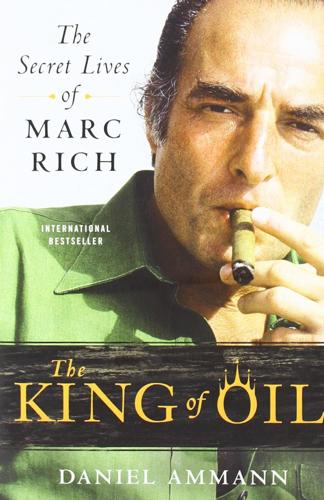
The King of Oil: The Secret Lives of Marc Rich
by
Daniel Ammann
Published 12 Oct 2009
Gray added, “It is worth noting that these are not the traits most praised by conservative moralists.”2 “Yes,” a senior Marc Rich + Co. director with vast experience all over the world once confessed to me, “sometimes we had to make a Faustian bargain to clinch the deal.” The words resonated in my head for quite some time. A Faustian bargain. Nowadays this phrase is usually used to describe self-serving actions and moral sacrifices—a pact with the devil in order to gain power, wealth, or influence—but in Faust: A Tragedy, Johann Wolfgang von Goethe’s greatest work, the scholar Heinrich Faust is not simply a ruthless egoist. He represents men who strive for achievement and who want to test their own limitations. Faust stands for the scientist who breaks conventions in order to discover “what holds the world together in its innermost.”
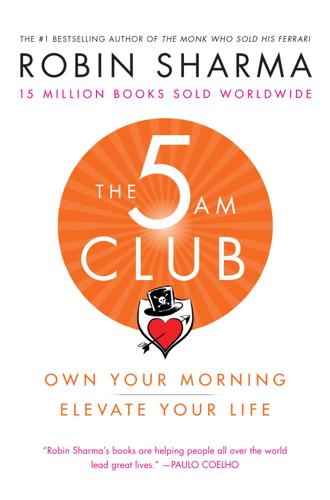
The 5 AM Club: Own Your Morning. Elevate Your Life.
by
Robin Sharma
Published 4 Dec 2018
And continued to weep. Chapter 5 A Bizarre Adventure into Morning Mastery “Everyone holds his fortune in his own hands, like a sculptor the raw material he will fashion into a figure. . . . The skill to mold the material into what we want must be learned and attentively cultivated.” —Johann Wolfgang von Goethe “If you two are interested,” said the homeless man, “I’d be happy to spend a few mornings coaching you at my oceanside compound. I’ll show you my private morning routine and explain why dialing in the way you run your first hour to the highest degree is essential for personal mastery and exceptional business performance.
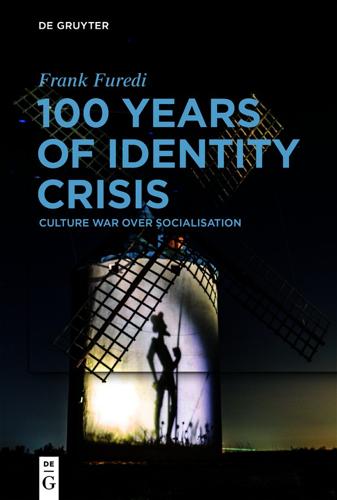
100 Years of Identity Crisis: Culture War Over Socialisation
by
Frank Furedi
Published 6 Sep 2021
His sensitivity to the predicament faced by alienated youth provided insights on which future writers would draw to develop the concept of adolescence and identity crisis. Other authors, too, were driven towards the depiction of characters at the threshold of adulthood. The association of emotional upheaval and preoccupation with the self and young adulthood acquired widespread public recognition in the aftermath of the publication of Johann Wolfgang von Goethe’s The Sorrows of Young Werther in 1774. Werther became the media sensation of the 18th century. It touched a raw nerve and led to widespread disquiet on both sides of the Atlantic. This was a story of unrequited love that led to the act of suicide by the main character of the novel. Goethe’s sympathetic depiction of Werther and of his demise drew attention to the turbulent emotional upheavals experienced by young people attempting to endow their life with meaning.
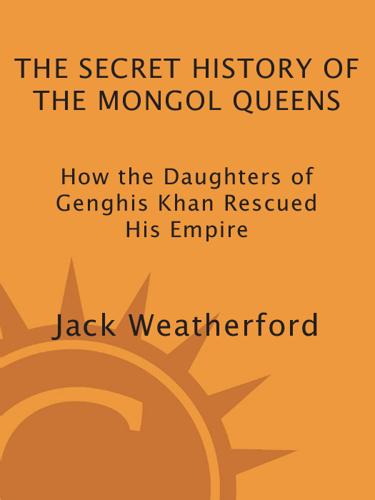
The Secret History of the Mongol Queens
by
Jack Weatherford
Published 14 Oct 2010
Fifty years later, the popular Italian playwright Carlo Gozzi saw the dramatic potential of the story for the stage, and in 1761 he premiered his play Turandotte in Venice, the hometown of Marco Polo. It offered the tale of a “tigerish woman” whose “greatest sin is her unrelenting pride.” In a combined effort by two of the greatest literary talents of the era, Friedrich von Schiller translated the play into German as Turandot, Prinzessin von China, and Johann Wolfgang von Goethe directed it on the stage in Weimar in 1802. The Italian composer Giacomo Puccini was working on his opera Turandot when he died in 1924, and a colleague completed it. “It’s useless shouting in Sanskrit, in Chinese, or Mongolian!” Puccini wrote of his heroine who refused to marry. She challenged men because of the wrongs done to one of her female ancestors “who ruled in silence and pure joy, defying the abhorred tyranny of man with constancy and firmness.”
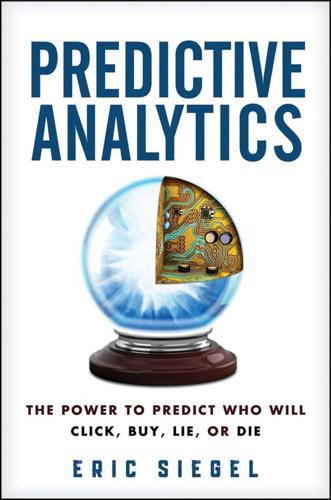
Predictive Analytics: The Power to Predict Who Will Click, Buy, Lie, or Die
by
Eric Siegel
Published 19 Feb 2013
The hunter hands over the kill to the cook, and the data scientist cooks up her model, translates it to a standard computer language, and e-mails it to an engineer for integration. A well-fed tribe shows the love; a psyched executive issues a bonus. The tribe munches and the scientist crunches. To Act Is to Decide Knowing is not enough; we must act. —Johann Wolfgang von Goethe Potatoes or rice? What to do with my life? I can’t decide. —From the song “I Suck at Deciding” by Muffin1 (1996) Once you develop a model, don’t pat yourself on the back just yet. Predictions don’t help unless you do something about them. They’re just thoughts, just ideas. They may be astute, brilliant gems that glimmer like the most polished of crystal balls, but hanging them on the wall gains you nothing and displays nerd narcissism—they just hang there and look smart.
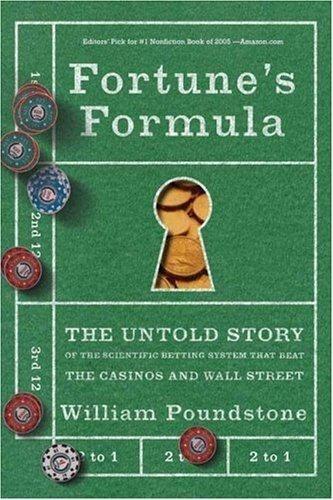
Fortune's Formula: The Untold Story of the Scientific Betting System That Beat the Casinos and Wall Street
by
William Poundstone
Published 18 Sep 2006
Now, if you can’t trust a fix, what can you trust? —Joel Coen and Ethan Coen, Miller’s Crossing Mathematicians are like a certain type of Frenchmen: when you talk to them they translate it into their own language, and then it soon turns into something completely different. —Johann Wolfgang von Goethe CONTENTS Prologue: The Wire Service PART ONE: ENTROPY Claude Shannon • Project X • Emmanuel Kimmel • Edward Thorp • Toy Room • Roulette • Gambler’s Ruin • Randomness, Disorder, Uncertainty • The Bandwagon • John Kelly, Jr. • Private Wire • Minus Sign PART TWO: BLACKJACK Pearl Necklace • Reno • Wheel of Fortune • More Trouble Than an $18 Whore • The Kelly Criterion, Under the Hood • Las Vegas • The First Sure Winner in History • Deuce-Dealing Dottie • Bicycle Built for Two PART THREE: ARBITRAGE Paul Samuelson • The Random Walk Cosa Nostra • This Is Not the Time to Buy Stocks • IPO • Bet Your Beliefs • Beat the Market • James Regan • Resorts International • Michael Milken • Robert C.
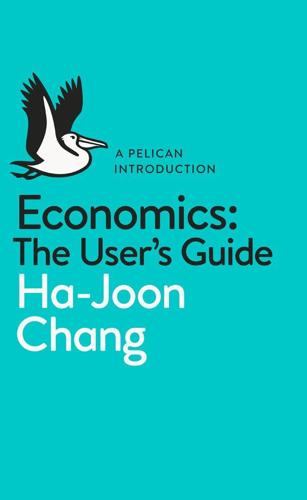
A Pelican Introduction Economics: A User's Guide
by
Ha-Joon Chang
Published 26 May 2014
But please don’t be a man (or a woman) with a hammer – still less someone unaware that there are other tools available. To extend the analogy, use a Swiss army knife instead, with different tools for different tasks. ‘Everything factual is already a theory’: facts, even numbers, are in the end not objective Johann Wolfgang von Goethe, the German writer (Faust) and scientist (Theory of Colours), once said that ‘everything factual is already a theory’.1 This is something to bear in mind when looking at economic ‘facts’. Many people would assume that numbers are straightforward and objective, but each of them is constructed on the basis of a theory.
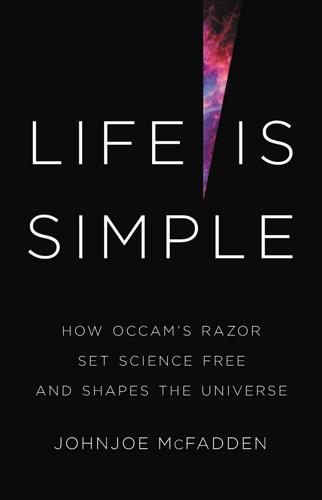
Life Is Simple: How Occam's Razor Set Science Free and Shapes the Universe
by
Johnjoe McFadden
Published 27 Sep 2021
When he connected both with a wire, he suffered abdominal pain and reported that ‘by inserting the silver more deeply into the rectum a bright light appears before both eyes’.13 Fortunately, Humboldt survived the rigours of self-experimentation and, in 1794, visited his brother, Wilhelm, who was living with his wife, Caroline, in the town of Jena, then the cultural heart of the duchy of Saxe-Weimar and close to the home of that colossus of German culture Johann Wolfgang von Goethe. Wilhelm and Caroline were members of Goethe’s circle of friends and so they provided Alexander with an introduction to the great poet. By this time, Goethe was no longer the Adonis-like figure who had won and broken many hearts in his youth. He was fat, middle-aged and sullen. However, the arrival of the young Prussian, bursting with fascination for all things natural, helped to rekindle Goethe’s youthful enthusiasms, particularly for the natural sciences.
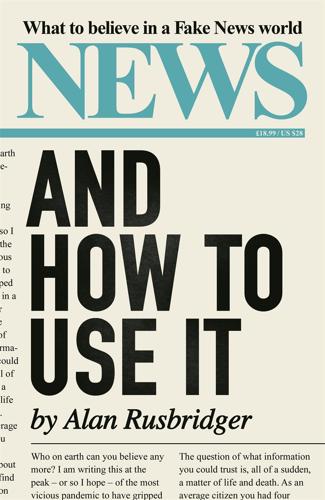
News and How to Use It: What to Believe in a Fake News World
by
Alan Rusbridger
Published 26 Nov 2020
Any paper that can simultaneously manage to entertain and engage millions of readers while also addressing the great issues of the day can, as he argued, play an important role in democracy. BREVITY ‘I’m sorry I wrote you such a long letter; I didn’t have time to write a short one.’ This remark is variously attributed to Mark Twain, George Bernard Shaw, Voltaire, Blaise Pascal, Johann Wolfgang von Goethe, Winston Churchill, Pliny the Younger, Cato, Cicero, Bill Clinton, Benjamin Franklin and . . . but I am already going on a bit. Whoever said it, they were acknowledging that it is quite often harder to write something concise and well-structured than it is to ramble on at length. But how long is right?
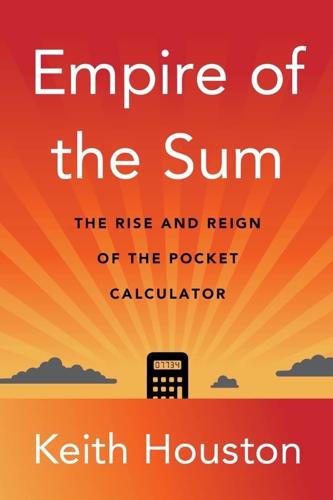
Empire of the Sum: The Rise and Reign of the Pocket Calculator
by
Keith Houston
Published 22 Aug 2023
Just so are men equal before God, but they are unequal according to the station which God has placed them. Shakespeare called on them in Julius Caesar, implying that Brutus is so greedy as to steal even worthless counting tokens: When Marcus Brutus grows so covetous to lock such rascal counters from his friends be ready, gods . . . And as late as the nineteenth century, Johann Wolfgang von Goethe could write of them in Faust, relying on his audience to know that Rechenpfennige (counting tokens) were inherently valueless: Did you think they’d give you real money and goods? In this game even worthless counters Are far too good for you.81 Shakespeare, Luther, and Goethe were right: counters had no numeric or monetary value, except when placed in their natural habitat of the counting board.
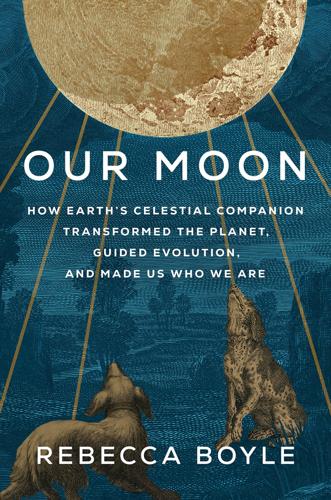
Our Moon: How Earth's Celestial Companion Transformed the Planet, Guided Evolution, and Made Us Who We Are
by
Rebecca Boyle
Published 16 Jan 2024
And why wouldn’t they? Everyone believes they’re the center of the universe. We all, at some point, experience the tragic epiphany that demonstrates otherwise. “Of all discoveries and opinions, none may have exerted a greater effect on the human spirit than the doctrine of Copernicus,” another German, Johann Wolfgang von Goethe, would say two centuries later. “Never, perhaps, was a greater demand made on mankind.”3 The narrative in Somnium is much shorter than Kepler’s 223 footnotes and charmingly titled “Geographical or, if you Prefer, Selenographical Appendix.” The footnotes, added between 1622 and 1630, are heavy with science, and modern scholars believe they were partially meant to exonerate Kepler’s mother, Katharina, from accusations of witchcraft, an eventual outcome of Kepler’s attempt to gently awaken Earthlings to our centuries-long sleep.
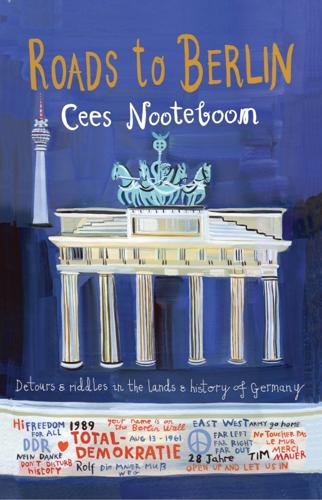
Roads to Berlin
by
Cees Nooteboom
and
Laura Watkinson
Published 2 Jan 1990
A world is coming undone, and on the screens it looks like a celebration, just like that other distant celebration, only a few weeks ago. July 15, 1989 1 As a bird of prey / Rests on heavy morning clouds / With wing so gentle / And seeks its quarry / Let my song hover. “Harzreise im Winter,” Johann Wolfgang von Goethe. 2 From Goethes Harzreisen by Rolf Denecke (Hildesheim: Verlag August Lax, 1980). 3 I neither wish to examine the unrest within me, nor to have it examined. When I am quite alone I recognize myself as I was in my first youth, when I was drifting through the world all on my own. People still seem the same to me, but today I made an observation: as long as I was subject to the stresses and strains of life, as long as there was nobody who understood what was going on inside me (rather, as it happens, people did not respect me at first, indeed they looked at me with suspicion because of some of the strange contradictions within me) I had with all the integrity of my heart a multitude of false and warped pretensions—it is not easy to say, I would have to go into details—I was eaten up by misery, oppressed, mutilated you might say.
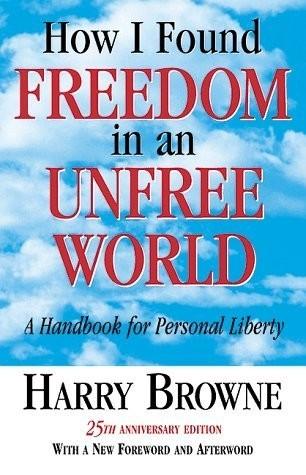
How I Found Freedom in an Unfree World: A Handbook for Personal Liberty
by
Harry Browne
Published 1 Jan 1973
If that principle seems far removed from the problem that led you to this book, I hope to show you shortly that this is the foundation necessary to free yourself of any restriction. Until you discover and accept yourself fully, you won't have the conviction or the courage to be free. As soon as you trust yourself, you will know how to live. JOHANN WOLFGANG VON GOETHE Nature, to be commanded, must be obeyed. FRANCIS BACON 3 The Intellectual and Emotional Traps TO BECOME FREE requires a well-conceived plan of action. It can't be achieved by occasional spur-of-the-moment hunches. To be free, you must know what you're doing and why. Otherwise, slight setbacks can cause you to discard your plans and give up.
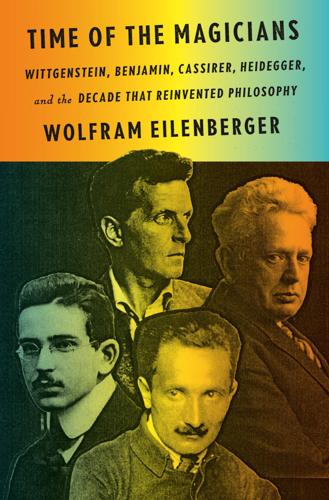
Time of the Magicians: Wittgenstein, Benjamin, Cassirer, Heidegger, and the Decade That Reinvented Philosophy
by
Wolfram Eilenberger
Published 14 Sep 2020
Classification: LCC B3181 .E5513 2020 (print) | LCC B3181 (ebook) | DDC 193—dc23 LC record available at https://lccn.loc.gov/2019050893 LC ebook record available at https://lccn.loc.gov/2019050894 Cover design: Stephanie Ross Cover images: (clockwise from top) Ludwig Josef Johann Wittgenstein, Moritz Nähr / IanDagnall Computing / Alamy Stock Photo; Ernst Cassirer, Transocean 1931 / ullstein bild / Getty Images; Martin Heidegger, Apic / Getty Images; Walter Benjamin, J. Ll. Banús / age fotostock / Alamy Stock Photo pid_prh_5.5.0_c0_r0 For Eva The best that we have from history is the enthusiasm that it stimulates. Johann Wolfgang von Goethe, Maxims and Reflections CONTENTS I. PROLOGUE: THE MAGICIANS The Arrival of God • High Fliers • Maintaining One’s Composure • The Davos Myth • Human Questions • Without Foundation • Two Visions • At a Crossroads • Where Is Benjamin? • Fail Better • Does My Life Need a Goal?
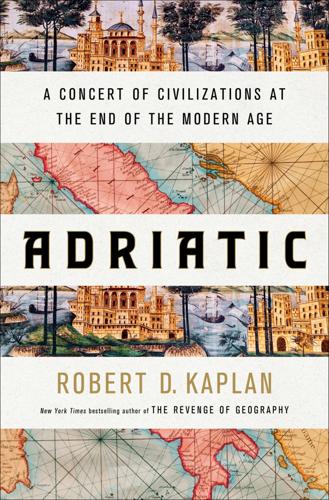
Adriatic: A Concert of Civilizations at the End of the Modern Age
by
Robert D. Kaplan
Published 11 Apr 2022
BACK TO NOTE REFERENCE 15 Joseph Brodsky, Watermark (New York: Farrar, Straus & Giroux, 1992), pp. 5, 7–8, 13, 23, 27, 43, and 96. BACK TO NOTE REFERENCE 16 Brodsky, Watermark, pp. 62 and 70. BACK TO NOTE REFERENCE 17 Mary McCarthy, Venice Observed (New York: Penguin Books, [1956] 1972), pp. 177, 180–81, and 275. BACK TO NOTE REFERENCE 18 Johann Wolfgang von Goethe, Italian Journey [1786–1788], trans. W. H. Auden and Elizabeth Mayer (New York: Penguin Books, [1816] 1962 and 1970), p. 77. BACK TO NOTE REFERENCE 19 McCarthy, Venice Observed, pp. 190-93. BACK TO NOTE REFERENCE 20 Roger Crowley, City of Fortune: How Venice Ruled the Seas (New York: Random House, [2011] 2012), pp. xxvi–xxviii and 5.
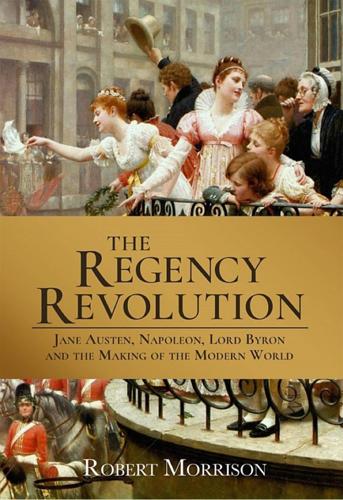
The Regency Revolution: Jane Austen, Napoleon, Lord Byron and the Making of the Modern World
by
Robert Morrison
Published 3 Jul 2019
In America, the literary critic and novelist John Neal lauded Childe Harold as “full of deep philosophizing sadness.” In Canada, the essayist James Irving found in Byron’s poetry “a populous world of the human heart,” for “there would be many Giaours, and Corsairs, and Laras, were the opportunity given.” In Germany, the septuagenarian poet Johann Wolfgang von Goethe praised Don Juan (1819–24) as “a work of boundless genius.” 76 Female interest in Byron was even more intense. Teenage girls and young women besieged him with fan letters asking for his autograph, a signed copy of one of his books, a lock of his hair, or a place in his thoughts. His most hysterical fan, Lady Caroline Lamb, famously described him as “mad, bad, and dangerous to know,” a phrase that enshrined his “bad boy” image and that succinctly captured his rakish appeal.
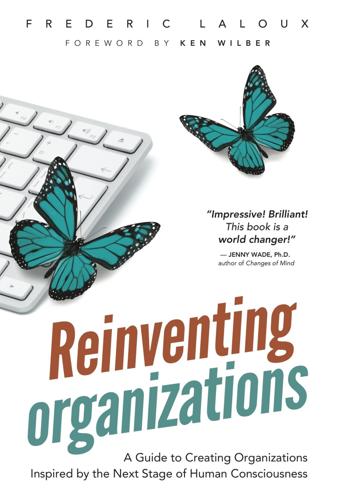
Reinventing Organizations: A Guide to Creating Organizations Inspired by the Next Stage of Human Consciousness
by
Frederic Laloux
and
Ken Wilber
Published 9 Feb 2014
I feel inspired to focus and accomplish more than I ever have. I feel empowered to make decisions, and invited to get support around doing so. I feel totally lit up by the aim I am serving.134 Chapter 3.2 STARTING UP A TEAL ORGANIZATION Whatever you do or dream you can do—begin it. Boldness has genius and power and magic in it. Johann Wolfgang von Goethe Perhaps as you read this book you are about to start a new business, nonprofit, school, hospital, or foundation, and you are wondering how to bake Teal yeast into the dough of the organization from the start. (If you run an existing organization and are wondering how to transform it along Teal lines, the next chapter addresses that question more specifically.)
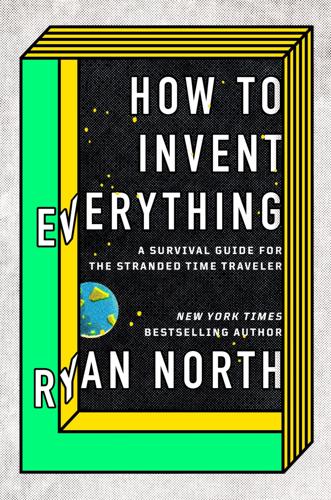
How to Invent Everything: A Survival Guide for the Stranded Time Traveler
by
Ryan North
Published 17 Sep 2018
And while this barometer works well with liquid mercury, if you use liquid water—a more easily available but much less dense substance—you’ll need a tube that’s around 10.4m high for it to work: any shorter and all the water will run out of the tube before the outside water holds it in place.* A more clever approach for using water to measure air pressure is the following design, called a “Goethe barometer.” It was invented by a human named Johann Wolfgang von Goethe in the early 1800s CE, but is now going to be invented by a human named your name in whatever time period you’re in: Figure 29: Behold, your latest invention: a good barometer. This is just a glass container with a spout, open to the air, that reaches up and above the container itself.
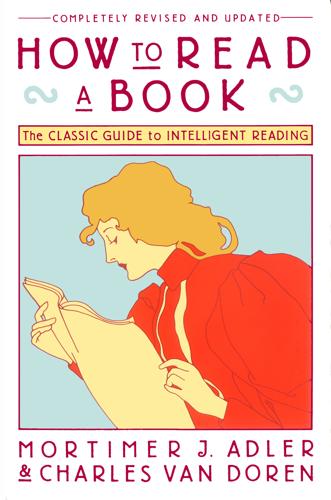
How to Read a Book
by
Mortimer J. Adler
and
Charles van Doren
Published 14 Jun 1972
John Jay (1745-1829), James Madison (1751-1836), and Alexander Hamilton (1757-1804) * Federalist Papers (together with the *Articles of Confederation, the * Constitution of the United States, and the * Declaration of Independence) 85. Jeremy Bentham (1748-1832) Introduction to the Principles of Morals and Legislation Theory of Fictions 86. Johann Wolfgang von Goethe (1749-1832) * Faust Poetry and Truth 87. Jean Baptiste Joseph Fourier (1768-1830) * Analytical Theory of Heat 88. Georg Wilhelm Friedrich Hegel (1770-1831) Phenomenology of Spirit * Philosophy of Right * Lectures on the Philosophy of History 89. William Wordsworth (1770-1850) Poems (esp.
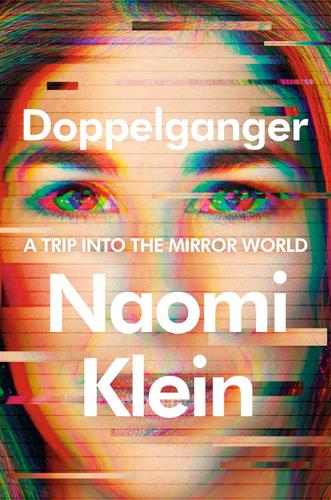
Doppelganger: A Trip Into the Mirror World
by
Naomi Klein
Published 11 Sep 2023
We learned, in myriad ways, that there was something sacrilegious about even speaking of the Nazi Holocaust in the same breath as any other crime, that to do so made it less horrific, less shocking, somehow ordinary. But what if ordinary is horrific? What if that’s the point: that Nazism is not an aberration from an otherwise uplifting story of enlightenment and modernity, but its not-so-distant double, its other face? Referencing Germany’s great scribe, Johann Wolfgang von Goethe, Lindqvist writes, “The idea of extermination lies no farther from the heart of humanism than Buchenwald lies from the Goethehaus in Weimar. That insight has been almost completely repressed, even by the Germans, who have been made sole scapegoats for ideas of extermination that are actually a common European heritage.”
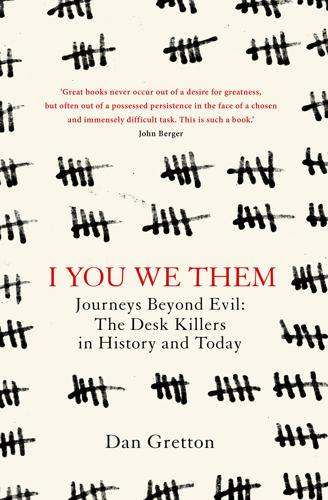
I You We Them
by
Dan Gretton
We pause by the Nationaltheater, where the Weimar National Assembly hosted the German Parliament briefly after the First World War, from February to August 1919, after the January 1919 election – the first time women had been able to vote in Germany, and also the first election carried out under a system of proportional representation. This was also the place where the Weimar Constitution fully established Germany as a parliamentary democracy. In front of the theatre there’s the famous double statue of friendship – Johann Wolfgang von Goethe and Johann Friedrich von Schiller, the two spiritual giants of this place. A young guy with a ponytail, a music student, is playing classical requests on a piano in the main square. How is it really possible to grasp the meaning of Weimar in German culture? It’s best known as the home of those twin pillars of German thought, Goethe and Schiller, the place where Goethe lived for most of his life – arriving in 1775 at the age of twenty-six, and staying here until his death nearly sixty years later in 1832.
…
But, in the absence of this possibility, I have tried to bring them together in the pages of this chapter. 1 Weimar was also the place where Bach began writing his sonatas and partitas for solo violin, including the astonishing Partita No. 2 in D minor, which Brahms said contained ‘a whole world of the deepest thoughts’ and Yehudi Menuhin believed was simply ‘the greatest structure for solo violin that exists’. 2 ‘In living nature nothing happens that is not in connection with the whole …’ ‘Der Versuch als Vermittler von Objekt und Subjekt’ (‘The Experiment as Mediator of Object and Subject’) by Johann Wolfgang von Goethe. 3 The ‘mortality among them was extraordinarily high’ quote about the Dora works is from Inside the Third Reich by Albert Speer. 4 Levi’s comment on wanting the sequel to The Drowned and the Saved to be an investigation into ‘the German industries (BASF, Siemens, Bayer) involved in the Nazi camps’ is from Ian Thomson’s biography Primo Levi (‘In London 1986’).
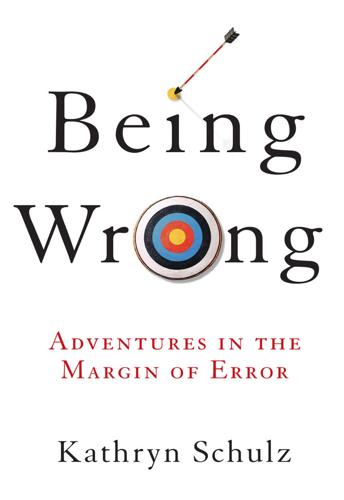
Being Wrong: Adventures in the Margin of Error
by
Kathryn Schulz
Published 7 Jun 2010
The aim of the rest of this book, then, is to get closer to error: close enough to examine other people’s real-life experiences of it, and, in the end, close enough to live with our own. 10. How Wrong? Once you have missed the first buttonhole you’ll never manage to button up. —JOHANN WOLFGANG VON GOETHE On the morning of October 22, 1844, a group of people gathered to await the end of the world. They met in homes, in churches, and in outdoor revival meetings, primarily in New York and New England but also throughout the United States and Canada, and as far away as England, Australia, and South America.
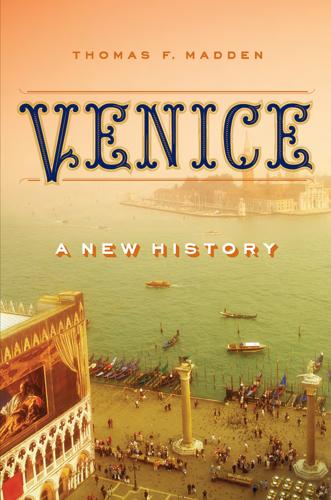
Venice: A New History
by
Thomas F. Madden
Published 24 Oct 2012
It was, he believed, “the finest ship in the world. . . . The floor is wood laid in handsom figures, every thing else you see in side and out is finely carv’d and gilt all over in the most beautifull manner . . . at the helm is the Doges gilt throne the Nobles being rangd all down.” The German polymath, Johann Wolfgang von Goethe, attended the Sensa in 1786, and wrote of the bucintoro: “The ship is itself an ornament; therefore one may not say that it is overloaded with ornaments, and only a mass of gilded carvings that are otherwise useless. In reality it is a monstrance, in order to show the people that their leaders are indeed wonderful.”

Data Science for Business: What You Need to Know About Data Mining and Data-Analytic Thinking
by
Foster Provost
and
Tom Fawcett
Published 30 Jun 2013
The authors wish to thank the developers and contributors of: Python and Perl Scipy, Numpy, Matplotlib, and Scikit-Learn Weka The Machine Learning Repository at the University of California at Irvine (Bache & Lichman, 2013) Finally, we encourage readers to check our website for updates to this material, new chapters, errata, addenda, and accompanying slide sets. * * * [1] Of course, each author has the distinct impression that he did the majority of the work on the book. Chapter 1. Introduction: Data-Analytic Thinking Dream no small dreams for they have no power to move the hearts of men. —Johann Wolfgang von Goethe The past fifteen years have seen extensive investments in business infrastructure, which have improved the ability to collect data throughout the enterprise. Virtually every aspect of business is now open to data collection and often even instrumented for data collection: operations, manufacturing, supply-chain management, customer behavior, marketing campaign performance, workflow procedures, and so on.
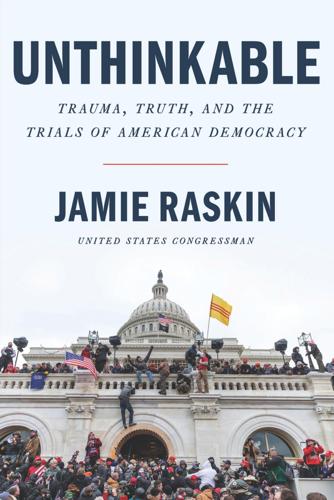
Unthinkable: Trauma, Truth, and the Trials of American Democracy
by
Jamie Raskin
Published 4 Jan 2022
I did not completely recover my sense of humor while in Florida, as I had hoped I might, but I could see that, even with all the tragedy and evil around us, there was still going to be humor in the world, and Tommy and I would both be part of it. Chapter 10 Writing Trump Be bold and mighty forces will come to your aid. —JOHANN WOLFGANG VON GOETHE We returned to Maryland in time for two birthdays: Tommy’s, on January 30, when he would have turned twenty-six, and Tabitha’s, on January 31, when she turned twenty-four. Sarah and Hannah would be back home, too. Our close friend Judy Minor came to spend the weekend also, and we had decided to be all together at home and to read letters, but there was also a charitable outing on the morning of January 30.

Army of None: Autonomous Weapons and the Future of War
by
Paul Scharre
Published 23 Apr 2018
Anjali Singhvi and Karl Russell, “Inside the Self-Driving Tesla Fatal Accident,” New York Times, July 1, 2016, https://www.nytimes.com/interactive/2016/07/01/business/inside-tesla-accident.html. “A Tragic Loss,” June 30, 2016, https://www.tesla.com/blog/tragic-loss. 148 The Sorcerer’s Apprentice: Sorcerer’s Apprentice—Fantasia, accessed June 7, 2017, http://video.disney.com/watch/sorcerer-s-apprentice-fantasia-4ea9ebc01a74ea59a5867853. 148 German poem written in 1797: Johann Wolfgang von Goethe, “The Sorcerer’s Apprentice,” accessed June 7, 2017, http://germanstories.vcu.edu/goethe/zauber_e4.html. 149 “When you delegate authority to a machine”: Bob Work, interview, June 22, 2016. 150 “Traditional methods . . . fail to address”: U.S. Air Force Office of the Chief Scientist, Autonomous Horizons: System Autonomy in the Air Force—A Path to the Future (June 2015), 23, http://www.af.mil/Portals/1/documents/SECAF/AutonomousHorizons.pdf?
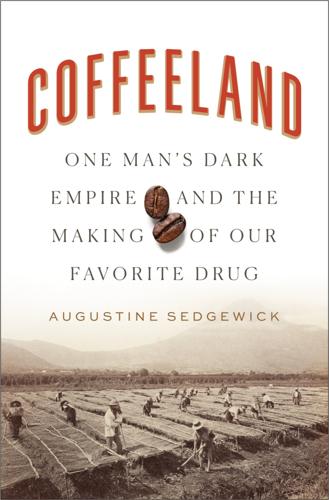
Coffeeland: One Man's Dark Empire and the Making of Our Favorite Drug
by
Augustine Sedgewick
Published 6 Apr 2020
Used daily by the great majority of Americans—perhaps 80 percent—it is “by any measure, the world’s most popular drug . . . the only addictive psychoactive substance that has overcome resistance and disapproval around the world to the extent that it is freely available almost everywhere, unregulated, sold without license, offered over the counter in tablet and capsule form, and even added to beverages intended for children.”11 Yet two centuries ago, at the moment of its discovery, caffeine was anything but mundane. Instead it was a window on nature’s sublime intricacy. Toward the end of his life, Johann Wolfgang von Goethe, the most celebrated intellect in Napoleon’s Europe, could see in his mind the invisible connections that bound the world together. He rejected Descartes’s separation of the mind and the body. He rejected Newton’s idea that the universe could be chopped into free-standing parts, each of which could be analyzed in isolation from the others.
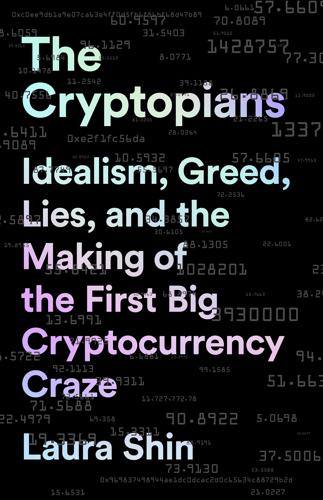
The Cryptopians: Idealism, Greed, Lies, and the Making of the First Big Cryptocurrency Craze
by
Laura Shin
Published 22 Feb 2022
@ReaderE, “This is the first evidence…,” May 14, 2016, comment on “The DAO Creation Period Price Schedule: There is 24 more hours until the price *actually* rises,” Reddit, May 14, 2016, https://www.reddit.com/r/TheDao/comments/4jap6d/the_dao_creation_period_price_schedule_there_is. 29. Gavin Wood, “Why I’ve Resigned as a Curator of the DAO,” Medium, May 13, 2016, https://gavofyork.medium.com/why-ive-resigned-as-a-curator-of-the-dao-238528fbd447. 30. Johann Wolfgang von Goethe, “The Sorcerer’s Apprentice,” trans. Katrin Gygax, accessed March 28, 2021, http://www.gygatext.ch/english_translations_zurich_sorcerers_apprentice.html. 31. 11,727,772.78, to be exact. 32. Gertrude Chavez-Dreyfuss, “Virtual company may raise $200 million, largest in crowdfunding,” Reuters, May 17, 2016, https://www.reuters.com/article/us-blockchain-crowdfunding-idUKKCN0Y82LI?
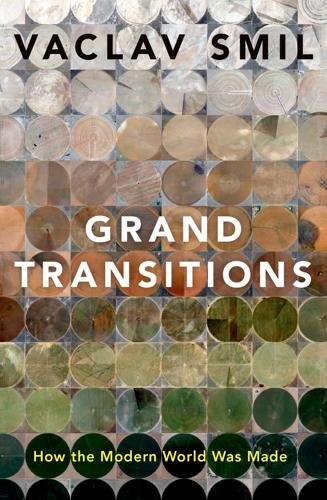
Grand Transitions: How the Modern World Was Made
by
Vaclav Smil
Published 2 Mar 2021
Mass tourism is a part of modern discretionary spending on experiences rather than on purchases of additional goods, a special category of consumerism that ranges from attending professional sports matches and contests to the so-called ecotourist expeditions, and it does so with a steadily widening orbit. Leisure travel has a long but largely elitist history and some of its description from the 18th and 19th centuries—including Tobias Smollett’s Travels through France and Italy (1766) or Johann Wolfgang von Goethe’s Italienische Reise (1816–1817)—remain among the classics of Western literature. For a long time, this kind of travel also had strong cultural and historical components. This was particularly true about the Grand Tour, the early modern custom among young rich English men and women (suitably chaperoned) to visit sites in France and Italy (Chaney 1998).
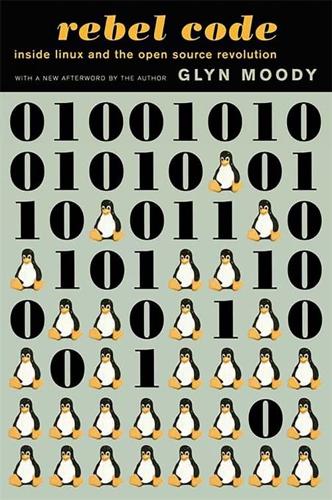
Rebel Code: Linux and the Open Source Revolution
by
Glyn Moody
Published 14 Jul 2002
For example, generous funding from aristocratic patrons enabled Ludwig van Beethoven to devote himself to writing works of such originality that they were often incomprehensible to his contemporaries, and also to promote the then-radical ideals of liberty he believed in. In the same way, Richard Stallman has been able to devote himself to his coding and campaigning thanks in part to patronage such as the McArthur Foundation fellowship. Johann Wolfgang von Goethe was a minister of state at the German court of Weimar, and took his duties there as seriously as his work on such projects as his masterpiece Faust, a vast patchwork of poetry that occupied him for fifty years. Alongside these major responsibilities, Goethe managed to juggle a family life (unlike Beethoven), rather as Linus somehow does (unlike Stallman) while holding down a full-time job at Transmeta and pushing forward his own life work that grows through constant accretion.
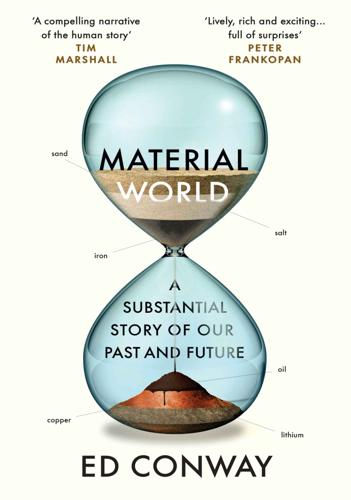
Material World: A Substantial Story of Our Past and Future
by
Ed Conway
Published 15 Jun 2023
As one government report put it a few years after the First World War, ‘For nearly a century the country had prospered under the individualistic doctrines of the Laisser-Faire [sic ] school; Free Trade had flourished for more than seventy years.’12 Meanwhile, in Prussia, the state provided financial support and guaranteed orders for the nascent glass sector, a kind of nineteenth-century industrial strategy led, strange as this may sound, by the poet Johann Wolfgang von Goethe. Schott, Abbe and Zeiss were given time and support to experiment. Their discoveries of new glass recipes with a host of different behaviours and refractive indices, and their success at mass producing them, meant that in the space of a few decades Germany became utterly dominant in precision optics, a position it held as war broke out in 1914.
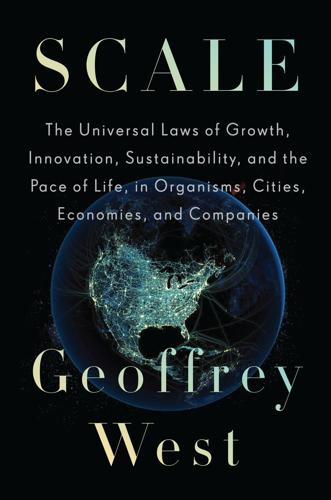
Scale: The Universal Laws of Growth, Innovation, Sustainability, and the Pace of Life in Organisms, Cities, Economies, and Companies
by
Geoffrey West
Published 15 May 2017
This speeding up of socioeconomic time is integral to modern life in the Urbanocene. Nevertheless, like many of us, I harbor a romantic image that not so long ago life was less hectic, less pressured, and more relaxed and that there was actually time to think and contemplate. But read what the great German poet, writer, scientist, and statesman Johann Wolfgang von Goethe said on the subject almost two hundred years ago in 1825, soon after the beginning of the Industrial Revolution1: Everything nowadays is ultra, everything is being transcended continually in thought as well as in action. No one knows himself any longer; no one can grasp the element in which he lives and works or the materials that he handles.

Berlin
by
Andrea Schulte-Peevers
Published 20 Oct 2010
Also part of the new generation are Thomas Ostermeier and Jens Hillje, codirectors of the Schaubühne am Lehniner Platz. Dramatic History Surprisingly, Berlin’s theatre scene had rather modest beginnings. The first quality productions weren’t staged until the arrival of such stellar dramatists as Gotthold Ephraim Lessing and Johann Wolfgang von Goethe in the middle of the 18th century. One of the first impresarios was August Wilhelm Iffland (1759–1814), who took over the helm of the Royal National Theatre in 1796 and was noted for his natural yet sophisticated productions. Iffland’s act proved hard to follow: when he died in 1814, Berlin theatre languished until Otto Brahm became director of the Deutsches Theater in 1894.
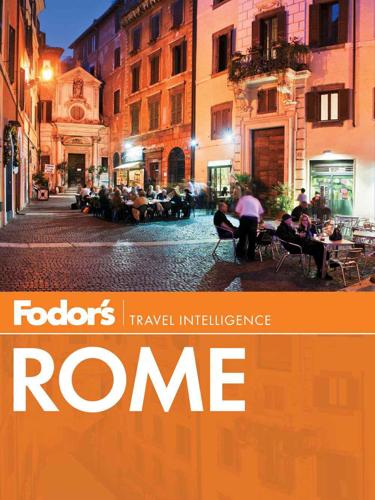
Fodor's Rome: With the Best City Walks and Scenic Day Trips
by
Fodor's Travel Publications Inc.
Published 24 Sep 2012
You may prefer to limit your shopping on Via Condotti to the window variety, but there’s one thing here that everybody can afford—a stand-up coffee at the bar at the Antico Caffè Greco, set just off the Piazza di Spagna and the Fontana della Barcaccia. With its tiny marble-top tables and velour settees, this 200-year-old institution has long been the haunt of artists and literati; it’s closed Sunday. Johann Wolfgang von Goethe, Byron, and Franz Liszt were habitués. Buffalo Bill stopped in when his road show hit Rome. The caffè is still a haven for writers and artists, along with plenty of Gucci-clad ladies. The tab picks up considerably if you decide to sit down to enjoy table service. | Via Condotti 86, Spagna | 00187 | 06/6791700 | www.anticocaffegreco.eu.
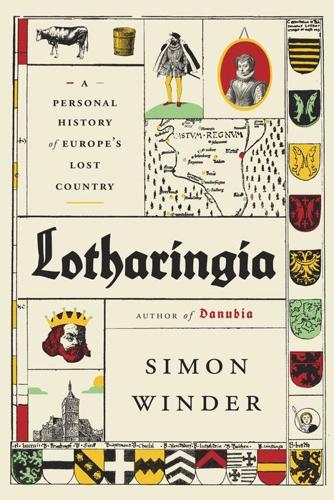
Lotharingia: A Personal History of Europe's Lost Country
by
Simon Winder
Published 22 Apr 2019
Freed, Frederick Barbarossa: The Prince and the Myth (New Haven, 2016) Johannes Fried, Charlemagne (Cambridge, MA, 2016) Robert Gerwarth, The Vanquished: Why the First World War Failed to End, 1917–1923 (London, 2016) Robert Gildea, Children of the Revolution: The French, 1799–1914 (London, 2008) Johann Wolfgang von Goethe, Campaign in France and Siege of Mainz, trans. Ricardo Cunha Mattos Portella (Amazon, 2012) Lionel Gossman, Basel in the Age of Burckhardt: A Study in Unseasonable Ideas (Chicago, 2000) Ruth Harris, The Man on Devil’s Island: Alfred Dreyfus and the Affair that Divided France (London, 2010) Marjolein ’t Hart, The Dutch Wars of Independence (Abingdon, 2014) Holger H.
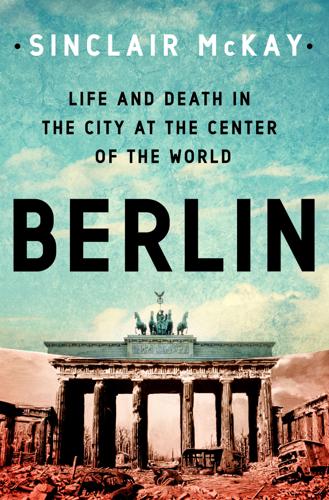
Berlin: Life and Death in the City at the Center of the World
by
Sinclair McKay
Published 22 Aug 2022
By combining this with horrifying (and frequently accurate) scare stories of the Red Army’s rampages through the smaller towns and villages of the east, Goebbels had summoned a vision of Armageddon, a lurid sunset on a civilized world and a world to follow that was a prospect too terrible to endure. In this way, suicide was made to seem natural, washed free of the stigma of mental instability. It was also, in a terrible way, an echo – possibly deliberate – of a German Romantic leitmotif of suicide and self-sacrifice. In the late eighteenth century, Johann Wolfgang von Goethe’s novel The Sorrows of Young Werther – the tragedy of a tortured young man, helplessly in love with a married woman, who finally decides that his suffering can be ended only by taking his own life – was said to have inspired a large number of its readers to follow the same course. Whereas the Church taught the inherent and grave sinfulness of self-destruction, Goethe depicted it as the heart-rending result of acute sensitivity and sensibility; exquisite passions tormented beyond reason.
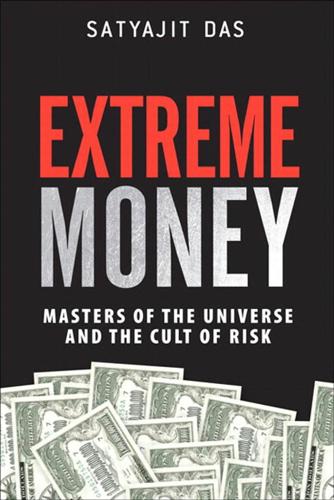
Extreme Money: Masters of the Universe and the Cult of Risk
by
Satyajit Das
Published 14 Oct 2011
Georg Simmel, a German sociologist and contemporary of Freud, argued that money imitated the world around it: “There is no more striking symbol...of the world than that of money.”29 Money is the ultimate Faustian bargain—a pact with the devil in return for earthly power, wealth, or knowledge. In the second part of Faust, Johann Wolfgang von Goethe has Faust and Mephistopheles visit the Emperor who lacks the money to pay his retinue of soldiers and servants as well as his lenders. Mephistopheles comes to the aid of the Emperor, obtaining his permission to print paper money. Faust has the Emperor sign a note that anticipates modern money: “To whom it may concern, be by these presents known, this note is legal tender for one thousand crowns and is secured by the immense wealth safely stored underground in our Imperial States.”
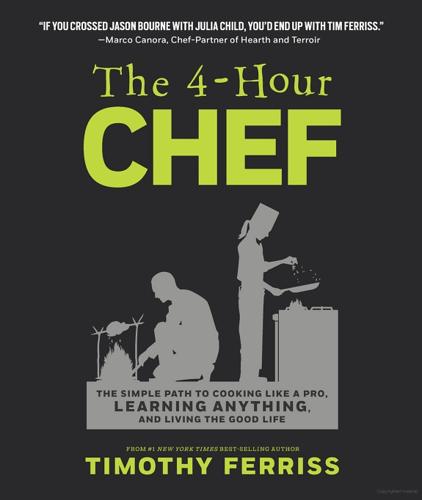
The 4-Hour Chef: The Simple Path to Cooking Like a Pro, Learning Anything, and Living the Good Life
by
Timothy Ferriss
Published 1 Jan 2012
Sometimes, whether in the world of fire-making or cooking, finding the path of least resistance is as easy as Googling “backward,” “upside-down,” or “reverse,” plus whatever skill you’re deconstructing. TRANSLATING: THE GRAMMAR OF ANY LANGUAGE (If the language stuff gets too dense, skip to “Learning to ‘Taste.’”) * * * “Wer fremde Sprachen nicht kennt, weiß nichts von seiner eigenen.” “He who doesn’t know foreign languages knows nothing of his own.” —Johann Wolfgang von Goethe * * * Cardinal Giuseppe Mezzofanti, born 1774, was called “the Devil” on many occasions. The charming Italian could speak at least 39 languages and, by some accounts, had been tested in 72. As arguably the world’s most famous hyperpolyglot, he was also systematic. First, he learned languages in families.
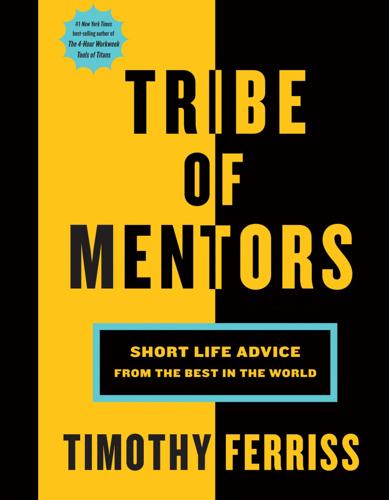
Tribe of Mentors: Short Life Advice From the Best in the World
by
Timothy Ferriss
Published 14 Jun 2017
Lewis “It is impossible to live without failing at something, unless you live so cautiously that you might as well not have lived at all—in which case you fail by default.”—J. K. Rowling What is one of the best or most worthwhile investments you’ve ever made? “If I accept you as you are, I make you worse; however, if I treat you as though you are what you are capable of becoming I help you become that.”—Johann Wolfgang von Goethe In my practice, when I see clients for the first time, I see them as the end product—the way they will be in the future. They are all beautiful. What stands between who they are and who they want to be is their willingness to change strong habits, belief systems, and the gracefulness to embrace a new way of living.
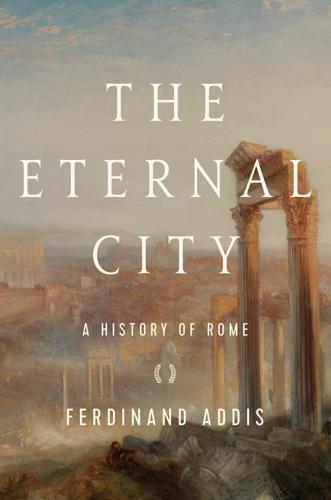
The Eternal City: A History of Rome
by
Ferdinand Addis
Published 6 Nov 2018
With hired guides called ciceroni – and Winckelmann himself was sometimes available, to the right sort of party – the tourists raced dutiful circuits of Rome’s various collections, together holding some 10,000 surviving specimens of antique art. The hopeless agitation of new arrivals in the galleries reminded Johann Wolfgang von Goethe, at Rome in 1787, of wasps batting themselves against a window to bounce off and go buzzing stupidly off along the walls of the endless rooms. Exposure to all this art was meant to be an education in taste. Goethe, already a literary celebrity when he arrived in Rome, was humbled by the experience: ‘No one who has not been here can have any conception of what an education Rome is,’ he wrote.
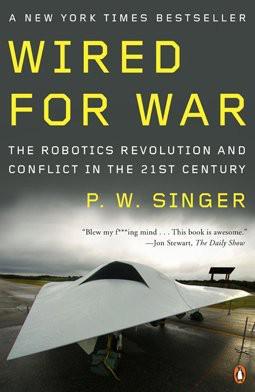
Wired for War: The Robotics Revolution and Conflict in the 21st Century
by
P. W. Singer
Published 1 Jan 2010
[TWO] SMART BOMBS, NORMA JEANE, AND DEFECATING DUCKS: A SHORT HISTORY OF ROBOTICS The further backward you look, the further forward you can see. —SIR WINSTON CHURCHILL “Perhaps the most wonderful piece of mechanism ever made” is how the famous Scottish engineer Sir David Brewster would describe it some one hundred years after it was invented. By contrast, the great poet Johann Wolfgang von Goethe called it “most deplorable ... like a skeleton [with] digestive problems.” The two men were talking about Vaucanson’s duck, the mechanical wonder of its age, or, as present-day scientists call it, “the Defecating Duck.” Jacques de Vaucanson was born in Grenoble, France, in 1709. At the age of twenty-six, he moved to Paris, then the center of culture and science during the Age of Enlightenment.
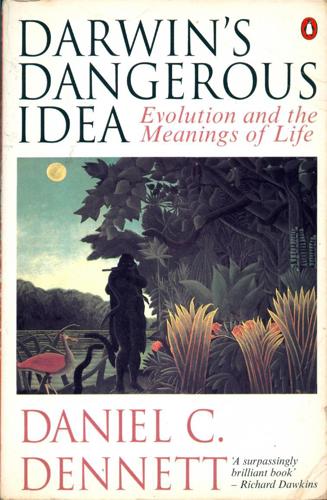
Darwin's Dangerous Idea: Evolution and the Meanings of Life
by
Daniel C. Dennett
Published 15 Jan 1995
Lewontin, Rose, and Kamin (1984, p. 283) claim that memes presuppose a "Cartesian" view of the mind, whereas in fact memes are a key (central but optional) ingredient in the best alternatives to Cartesian models (Dennett 1991a). CHAPTER THIRTEEN Losing Our Minds to Darwin 1. This bon mot appeared in the Tufts Daily, attributed to Johann Wolfgang von Goethe, but I daresay it is a meme of more recent birth. 2. This is an elaboration of ideas I first presented in Dennett 1975.1 recently discovered that Konrad Lorenz (1973) described a similar cascade of cranes — in different terms, of course. 3. In fairness to Chomsky, all he says is that free will might be a mystery.
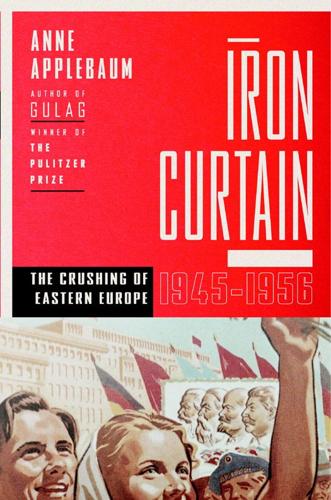
Iron Curtain: The Crushing of Eastern Europe, 1945-1956
by
Anne Applebaum
Published 30 Oct 2012
Parades, floats, spectacles, and speeches were also dedicated to older or more universal cultural figures, with an aim to winning over a wider public and appealing to national pride. When the German communist party realized that August 28, 1949, was not only the two hundredth anniversary of the birth of Johann Wolfgang von Goethe, one of Germany’s most revered writers, but that Goethe had fortuitously been born in Weimar, an East German city, the party, the Culture Ministry, and even the Stasi launched an almost frantic effort to claim this aristocratic Enlightenment figure as a kind of proto-communist. Meticulously, they planned an elaborate festival designed to show the West that communists cared more about high culture than did capitalists, to show their own people that communists were true German patriots, and to involve as many different kinds of people in as many events as possible.
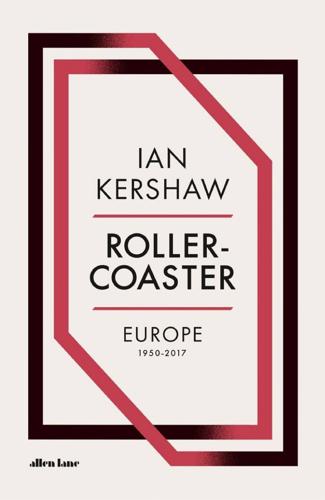
Roller-Coaster: Europe, 1950-2017
by
Ian Kershaw
Published 29 Aug 2018
Ian Kershaw, Manchester, November 2017 Foreword: Europe’s Two Eras of Insecurity It is the same with history as with nature, as with all profound problems, whether past, present or future: the more deeply and seriously one enters into problems, the more difficult are those that arise. Johann Wolfgang von Goethe In 1950 Europe was reawakening from the dark years of the worst war in history. The physical scars were to be seen throughout the continent in the ruins of bombed-out buildings. The mental and moral scars would take far longer to heal than the time to rebuild towns and cities. The inhumanity of the recent past would, in fact, cast a deep shadow over Europe throughout subsequent decades.
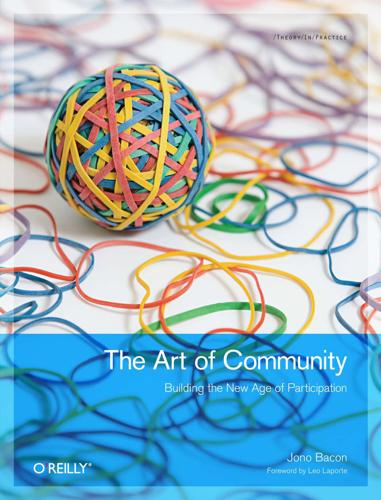
The Art of Community: Building the New Age of Participation
by
Jono Bacon
Published 1 Aug 2009
The chapter provides a good grounding for getting started, but always be open to your own context and how you meet the needs of that context. You will find your own approaches and techniques that will build on and in some cases replace the approaches here. This chapter is a start, not an end to this process. Chapter 10. Governance “Which is the best government? That which teaches us to govern ourselves.” —Johann Wolfgang von Goethe Mike Basinger is a nice guy. Some would say a little too nice for his own good: he is one of those people who are impossible to dislike, no matter how much you try. Quiet, conscientious, considerate, and understated, Mike is the epitome of the open source community. Few would imagine that he helps to govern the worldwide Ubuntu community at the highest level.
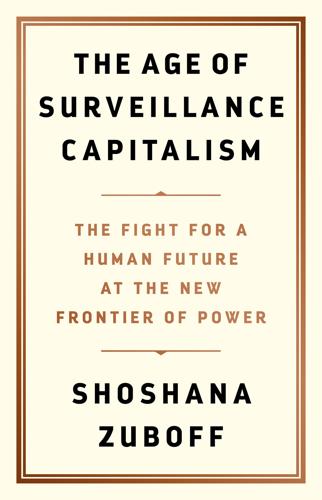
The Age of Surveillance Capitalism
by
Shoshana Zuboff
Published 15 Jan 2019
Mark Zuckerberg, “Building Global Community,” Facebook, February 16, 2017, https://www.facebook.com/notes/mark-zuckerberg/building-global-community/10154544292806634. 15. Mark Zuckerberg, “Facebook CEO Mark Zuckerberg’s Keynote at F8 2017 Conference (Full Transcript),” April 19, 2017, https://singjupost.com/facebook-ceo-mark-zuckerbergs-keynote-at-f8-2017-conference-full-transcript. 16. Johann Wolfgang von Goethe, “The Sorcerer’s Apprentice,” German Stories at Virginia Commonwealth University, 1797, http://germanstories.vcu.edu/goethe/zauber_e4.html. 17. Frank E. Manuel and Fritzie P. Manuel, Utopian Thought in the Western World (Cambridge, MA: Belknap Press, 1979), 20. 18. Manuel and Manuel, Utopian Thought, 23 (italics mine). 19.
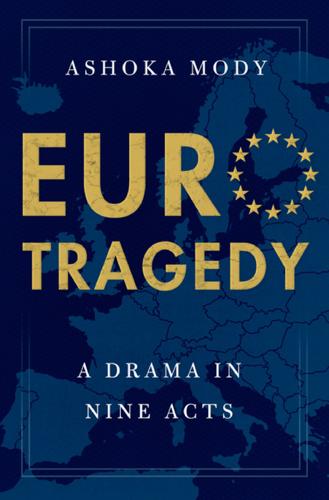
EuroTragedy: A Drama in Nine Acts
by
Ashoka Mody
Published 7 May 2018
To an audience in Stuttgart, she said that the risks of fiscal spending were best understood by the Swabian housewives from that region. Those frugal housewives, Merkel said, “would give us some short and good advice, which would be this: ‘You cannot live beyond your means in the long run.’ ”35 Merkel’s finance minister, Wolfgang Schäuble, repeated that theme. Quoting German writer and polymath Johann Wolfgang von Goethe, Schäuble said, “Let everyone sweep in front of his own door, and the whole world will be clean.”36 Schäuble believed that countries like Greece, with their undisciplined public finances, did not belong in the euro area. Since 1994, he had promoted his strongly held view that European integration should move forward with only a “hard core” of grown-up countries while the laggards shaped up.37 In his original conception, even Italy did not fit into Europe’s hard core.
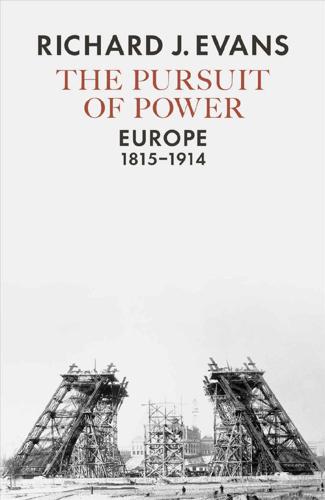
The Pursuit of Power: Europe, 1815-1914
by
Richard J. Evans
Published 31 Aug 2016
The French writer Alexandre Dumas declared he had experienced a ‘coup de foudre’ on reading Ivanhoe (1820) and settled down to write a series of historical romances including The Three Musketeers (1844), The Count of Monte Cristo (1844–5) and Robin Hood (1863). The Hungarian Jósika Miklós (1794–1865) even included direct quotations from Scott in his Abafi (1854), set in Transylvania, the first historical novel in the Magyar language. Pushkin called Scott ‘the Scottish sorcerer’. Germany’s most famous writer, Johann Wolfgang von Goethe (1749–1832), who championed the principles of Classicism while exercising a substantial influence on the Romantics through his most celebrated work, the poetic drama Faust (1808, part I, and 1832, part II), said of Scott: ‘I discover in him a wholly new art with laws of its own.’ Victor Hugo took Scott’s technique of elaborate descriptions of landscape and pageantry as an inspiration for his massive novel Notre-Dame de Paris (1831).
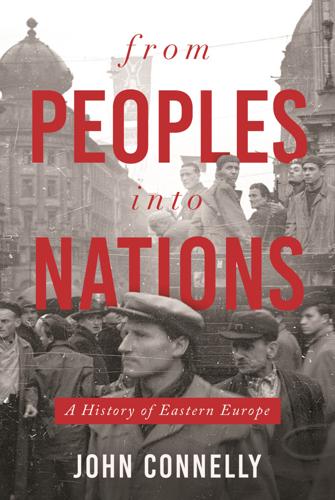
From Peoples into Nations
by
John Connelly
Published 11 Nov 2019
The French, distracted by enthusiasm for systems and universal principles, had failed to notice the unique beauty and importance of a people’s tongue; in contrast to the idea of French philosophes that languages were interchangeable, each one being an endless variety of the same thing, German thinkers held that every language gave expression to a people’s soul, placing it in direct relation to God. In the early nineteenth century, a cult of German language and culture grew in the Thuringian city of Weimar that was associated with the poets who made their home there, above all Friedrich Schiller and Johann Wolfgang von Goethe. But the cult’s prophet was their friend Johann Gottfried Herder, a Protestant pastor, universal historian, and thinker about nationhood whose ideas became so popular among Germans that Goethe later said people forgot the origins of these ideas, assuming they constituted eternal wisdom.
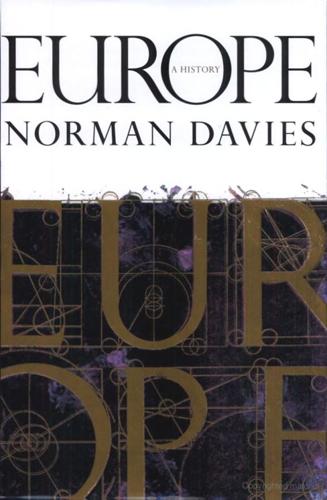
Europe: A History
by
Norman Davies
Published 1 Jan 1996
There is not a Pole who cannot recite ‘Oh, Litwo, my homeland, you are like health …’; not a German who has not been bewitched by ‘the land where the lemon-trees bloom’; no Russian schoolchild who has not been taught the lines of ‘The Bronze Horseman’ from St Petersburg: (Here we are destined by nature | To cut a window into Europe; | And to gain a foothold by the sea … I love you, Peter’s creation, | I love your severe, graceful appearance, | The Neva’s majestic current, | the granite of her banks… | City of Peter, stand in all your splendour, | Stand unshakeable as Russia! | May the conquered elements, too, make their peace.)15 Johann Wolfgang von Goethe (1749–1832), however, was not merely a national bard. He was an Olympian who bestrode almost all intellectual domains. The variety of genres in which he excelled, his awareness of a rapidly changing world, and the numerous evolutions through which his creativity passed gave him a claim to be the last ‘universal man’.